#northern brown ale
Explore tagged Tumblr posts
Text
i have to inject westeros with asianess because the closest i can get to Dudes Who Look Like Me are literally at the other end of the map being an orientalist fantasy
#also he's shit at naming yi tish characters#solidarity with my northern and central asian brothers getting possibly the worst ever representation like offensively shit and bad#also God Fucking Forbid you consider dorne to be representative of Al-Andalus and therefore middle eastern. you will be hunted down#by redditors screaming BUT THEYRE MEDITERRANEAN!!! like motherfucker its as obvious as the aegon iv/henry viii parallel#or if you hc them as south asian. the burn you at the stake!!! like shut up arianne is desi oooo spooky poc woman scaring you by being brown
12 notes
·
View notes
Text
Meet the seven new frog species we just named after iconic Star Trek captains!
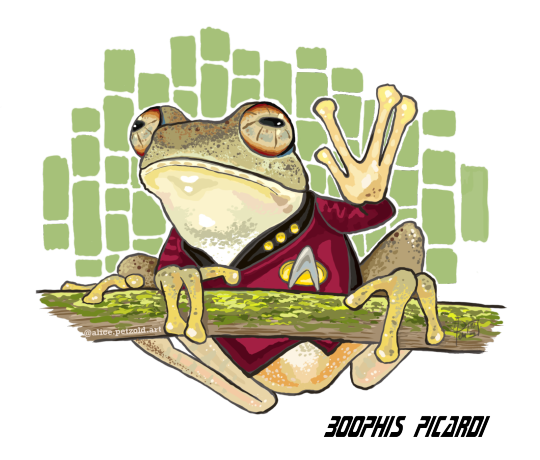
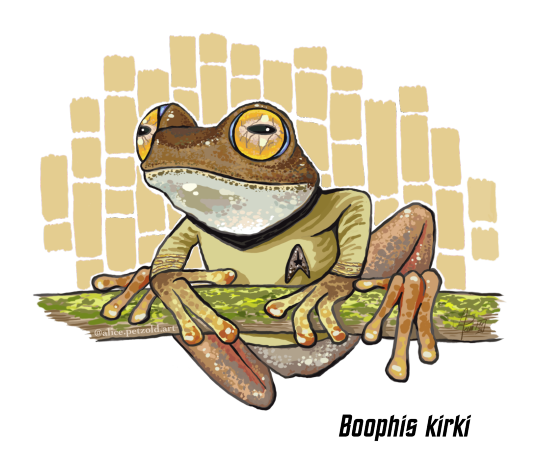
Artwork by A. Petzold, CC BY-ND 4.0
At the right time of year along rushing streams in the humid rainforests that stretch the length of Madagascar's eastern and northern mountain ridges, otherworldly trills of piercing whistles can be heard.
Are they birds? Insects? Communicator beeps? Tricorder noises?
No, they're little treefrogs!

Boophis janewayae. Photo by M. Vences, CC BY-SA 4.0
Until recently, we thought all of the populations of these little brown frogs across the island were one widespread species, Boophis marojezensis, described in 1994. But genetics in the early 2000s and 2010s showed that there were several species here, not just one.
Now my colleagues and I have shown that they are in fact eight separate species, each with unique calls!
These whistling sounds reminded us so much of Star Trek sound effects that we decided to name the seven new species after Star Trek captains: Boophis kirki, B. picardi, B. janewayae, B. siskoi, B. pikei, B. archeri, and B. burnhamae.
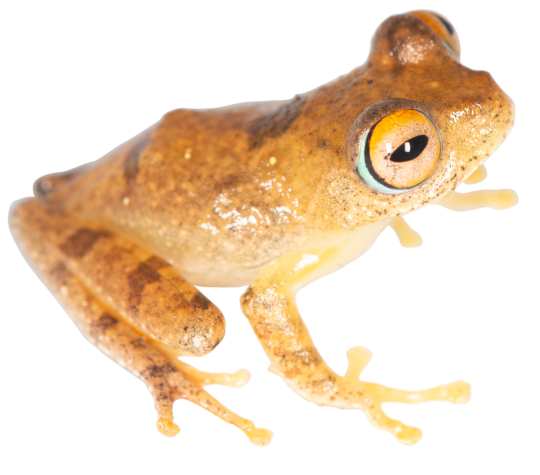



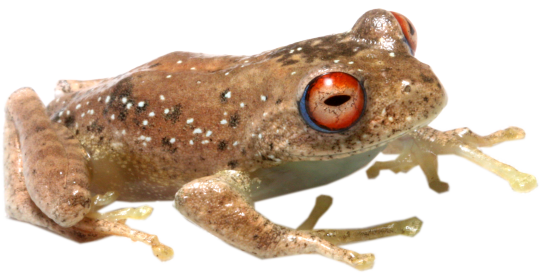
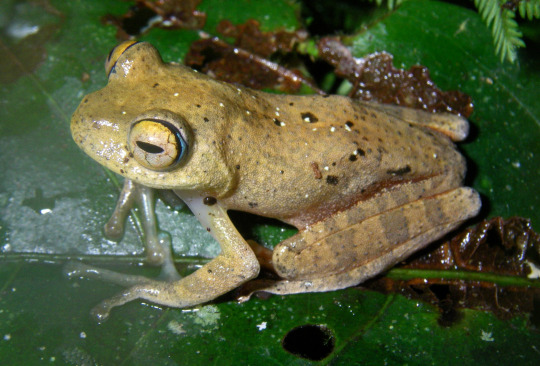
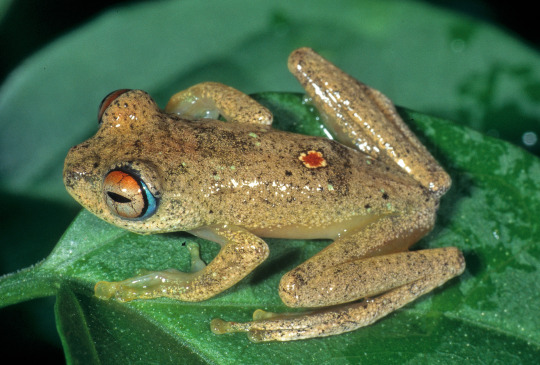
Photos of all new species described by Vences et al. 2024. CC BY-SA 4.0
I subtly and not-so-subtly built some Star Trek references into the paper, but probably the best one is this one:
'Finding these frogs sometimes requires considerable trekking; pursuing strange new calls, to seek out new frogs in new forests; boldly going where no herpetologist has gone before.'
— Vences et al. 2024
There’s a real sense of scientific discovery and exploration here, which we think is in the spirit of Star Trek.
Of course, it doesn't hurt that there are at least two Trekkies amongst the authors (including yours truly). As fans of Star Trek, we are also just pleased to dedicate these new species to the characters who have inspired and entertained us over the decades.
On a personal note, this marks a milestone for me, as it means I have now described over 100 frog species! I am very pleased that the 100th is Captain Janeway's Bright-eyed Frog, Boophis janewayae (if you count them in order of appearance in the paper)—she is probably my favourite captain, and I really love Star Trek: Voyager.
You can read more about the discovery of these new species on my website! You can also read the Open Access paper published in Vertebrate Zoology here.
#news#breaking news#Star Trek#new species#science#animals#WAKE UP BABE NEW FROGS JUST DROPPED#Boophis#Boophis janewayae#Boophis burnhamae#Boophis siskoi#Boophis pikei#Boophis archeri#Boophis kirki#Boophis picardi#in which nerds bring their nerdiness to work#Engage#WERE YOU WATCHING THIS SPACE?#THE FINAL FRONTIER?#DID YOU GET THE REFERENCE‽#Every time I have used that tag it has made me giddy with glee#you thought I was just goofin'#but I was FORESHADOWING#There's frogs in that nebula
8K notes
·
View notes
Text
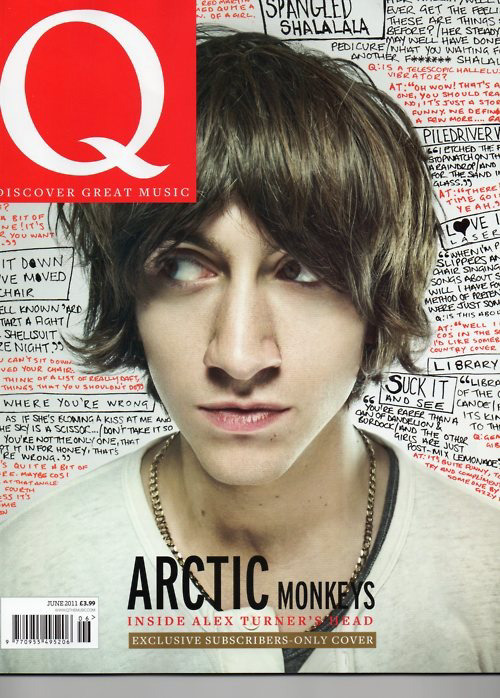

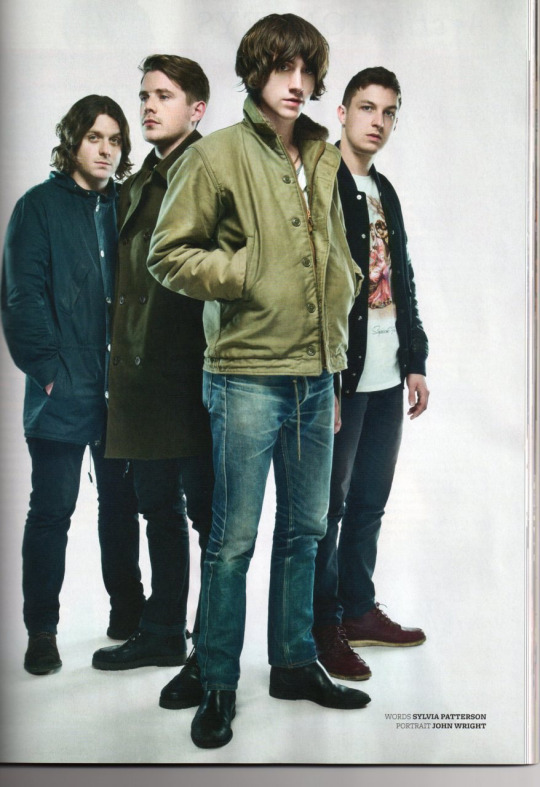
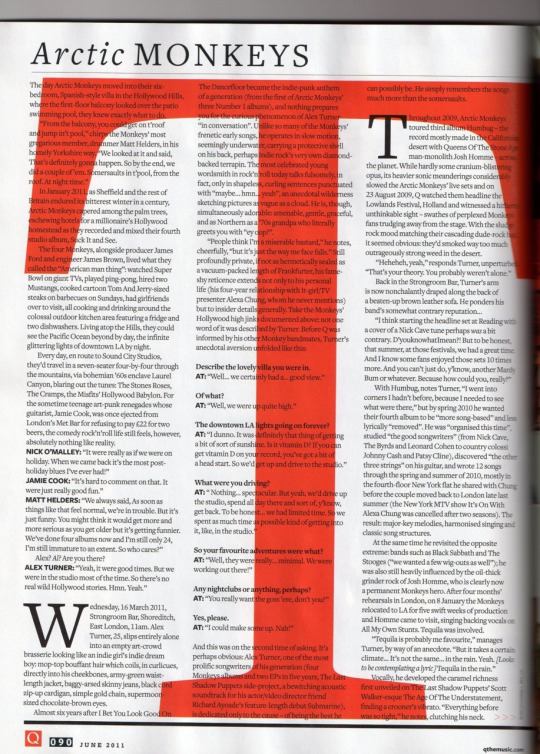

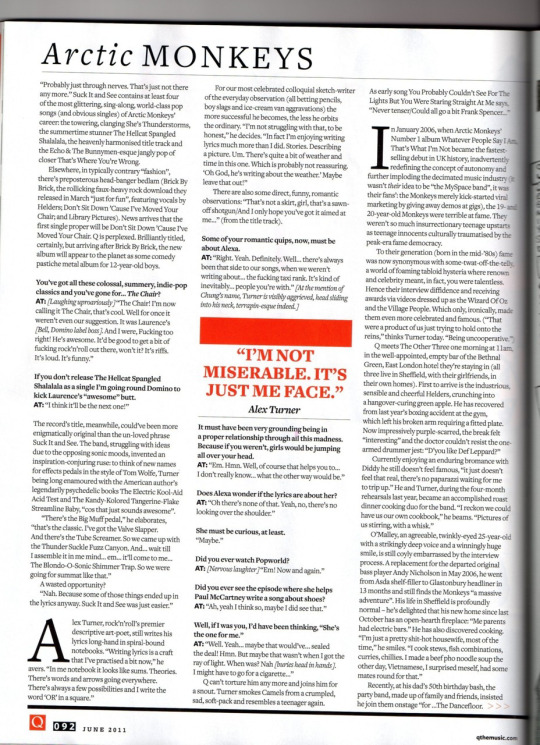


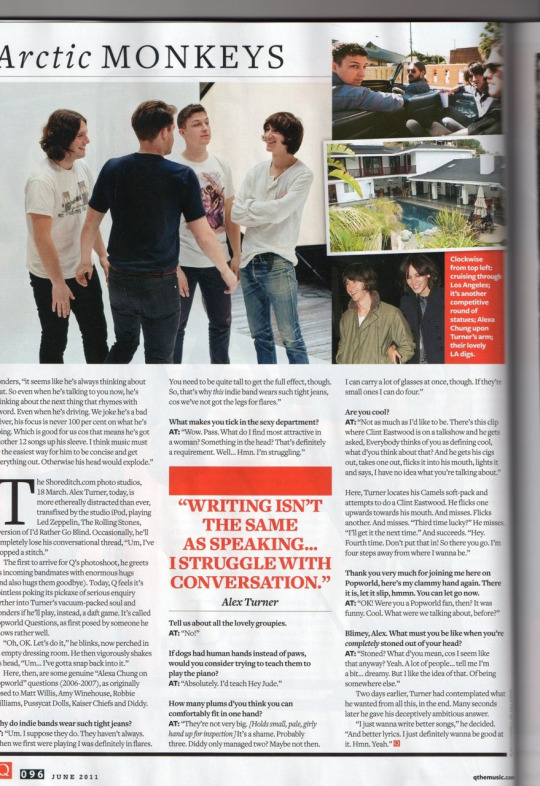
arctic monkeys for q magazine, june 2011 (x) (x)
ARCTIC MONKEYS: Inside Alex Turner's Head
Words Sylvia Patterson Portrait John Wright
The day Arctic Monkeys moved into their six bedroom, Spanish-style villa in the Hollywood Hills, where the first-floor balcony looked over the patio swimming pool, they knew exactly what to do.
"From the balcony, you could get on t'roof and jump in't pool," chirps the Monkeys' most gregarious member, drummer Matt Helders, in his homely Yorkshire way. "We looked at it and said, That's definitely gonna happen. So by the end, we did a couple of 'em. Somersaults in t'pool, from the roof. At night time."
In January 2011, as Sheffield and the rest of Britain endured its bitterest winter in a century, Arctic Monkeys capered among the palm trees, eschewing hotels for a millionaire's Hollywood homestead as they recorded and mixed their fourth studio album, Suck It and See.
The four Monkeys, alongside producer James Ford and engineer James Brown, lived what they called the "American man thing": watched Super Bowl on giant TVs, played ping-pong, hired two Mustangs, cooked cartoon Tom And Jerry-sized steaks on barbecues on Sundays, had girlfriends over to visit, all cooking and drinking around the colossal outdoor kitchen area featuring a fridge and two dishwashers. Living atop the Hills, they could see the Pacific Ocean beyond by day, the infinite glittering lights of downtown LA by night.
Every day, en route to Sound City Studios, they'd travel in a seven-seater four-by-four through the mountains, via bohemian 60s enclave Laurel Canyon, blaring out the tunes: The Stones Roses, The Cramps, the Misfits' Hollywood Babylon. For the sometime teenage art-punk renegades whose guitarist, Jamie Cook, was once ejected from London's Met Bar for refusing to pay €22 for two beers, the comedy rock'n'roll life still feels, however, absolutely nothing like reality.
NICK O'MALLEY: "It were really as if we were on holiday. When we came back it's the most post-holiday blues I've ever had!"
JAMIE COOK: "It's hard to comment on that. It were just really good fun."
MATT HELDERS: "We always said, As soon as things like that feel normal, we're in trouble. But it's just funny. You might think it would get more and more serious as you get older but it's getting funnier. We've done four albums now and I'm still only 24, I'm still immature to an extent. So who cares?"
Alex? Al? Are you there?
ALEX TURNER: "Yeah, it were good times. But we were in the studio most of the time. So there's no real wild Hollywood stories. Hmn. Yeah."
Wednesday, 16 March 2011, Strongroom Bar, Shoreditch, East London, 11am. Alex Turner, 25, slips entirely alone into an empty art-crowd brasserie looking like an indie girl's indie dream boy: mop-top bouffant hair which coils, in curlicues, directly into his cheekbones, army-green waist-length jacket, baggy-arsed skinny jeans, black cord zip-up cardigan, simple gold chain, supermoon sized chocolate-brown eyes.
Almost six years after I Bet You Look Good On The Dancefloor became the indie-punk anthem of a generation (from the first of Arctic Monkeys' three Number 1 albums), and nothing prepares you for the curious phenomenon of Alex Turner "in conversation". Unlike so many of the Monkeys frenetic early songs, he operates in slow motion, seemingly underwater, carrying a protective shell on his back, perhaps indie rock's very own diamond-backed terrapin. The most celebrated young wordsmith in rock'n roll today talks fulsomely, in fact, only in shapeless, curling sentences punctuated with "maybe... hmn.. yeah", an anecdotal wilderness sketching pictures as vague as a cloud. He is, though, simultaneously adorable: amenable, gentle, graceful, and as Northern as a 70s grandpa who literally greets you with "ey oop?".
"People think I'm a miserable bastard," he notes, cheerfully, "but it's just the way me face falls." Still profoundly private, if not as hermetically sealed as a vacuum-packed length of Frankfurter, his fante-shy reticence extends not only to his personal life (his four-year relationship with It-girl/TV presenter Alexa Chung, whom he never mentions) but to insider details generally. Take the Monkeys’ Hollywood high jinks documented above: not one word of it was described by Turner. Before Q was informed by his other Monkey bandmates, Turner’s anecdotal aversion unfolded like this:
Describe the lovely villa you were in. AT: "Well... we certainly had a... good view."
Of what? AT: "Well, we were up quite high."
The downtown LA lights going on forever? AT: "I dunno. It was definitely that thing of getting a bit of sort of sunshine. Is it vitamin D? If you can get vitamin D on your record, you've got a bit of a head start. So we'd get up and drive to the studio."
What were you driving? AT: "Nothing... spectacular. But yeah, we'd drive up the studio, spend all day there and sort of, y know, get back. To be honest... we had limited time. So we spent as much time as possible kind of getting into it, like, in the studio.
So your favourite adventures were what? AT: "Well, they were really… minimal. We were working out there!"
Any nightclubs or anything, perhaps? AT: "You really want the goss 'ere, don't you?"
Yes, please. AT: "I could make some up. Nah!"
And this was on the second time of asking. It's perhaps obvious: Alex Turner, one of the most prolific songwriters of his generation (four Monkeys albums and two EPs in five years, The Last Shadow Puppets side-project, a bewitching acoustic soundtrack for his actor/video director friend Richard Ayoade's feature-length debut Submarine), is dedicated only to the cause – of being the best he can possibly be. He simply remembers the songs much more than the somersaults.
Throughout 2009, Arctic Monkeys toured third album Humbug – the record mostly made in the Californian desert with Queens Of The Stone Age man-monolith Josh Homme – across the planet. While hardly some cranium-blistering opus, its heavier sonic meanderings considerably slowed the Arctic Monkeys' live sets and on 23 August 2009, Q watched them headline the Lowlands Festival, Holland and witnessed a hitherto unthinkable sight – swathes of perplexed Monkeys fans trudging away from the stage. With the sludge rock mood matching their cascading dude-rock hair it seemed obvious: they'd smoked way too much outrageously strong weed in the desert.
"Heheheh, yeah," responds Turner, unperturbed. "That's your theory. You probably weren't alone."
Back in the Strongroom Bar, Turner's arm is now nonchalantly draped along the back of a beaten-up brown leather sofa. He ponders his band's somewhat contrary reputation…
"I think starting the headline set at Reading with a cover of a Nick Cave tune perhaps was a bit contrary. D'youknowhat Imean?! But to be honest, that summer, at those festivals, we had a great time. And I know some fans enjoyed those sets 10 times more. And you can't just do, y’know, another Mardy Bum or whatever. Because how could you, really?"
With Humbug, notes Turner, "I went into corners I hadn't before, because I needed to see what were there," but by spring 2010 he wanted their fourth album to be "more song-based" and less lyrically "removed". He was "organised this time", studied "the good songwriters" (from Nick Cave, The Byrds and Leonard Cohen to country colossi Johnny Cash and Patsy Cline), discovered "the other three strings" on his guitar, and wrote 12 songs through the spring and summer of 2010, mostly in the fourth-floor New York flat he shared with Chung before the couple moved back to London late last summer (the New York MTV show It's On With Alexa Chung was cancelled after two seasons). The result: major-key melodies, harmonised singing and classic song structures.
At the same time he revisited the opposite extreme: bands such as Black Sabbath and The Stooges ("we wanted a few wig-outs as well"); he was also still heavily influenced by the oil-thick grinder rock of Josh Homme, who is clearly now a permanent Monkeys hero. After four months' rehearsals in London, on 8 January the Monkeys relocated to LA for five swift weeks of production and Homme came to visit, singing backing vocals on All My Own Stunts. Tequila was involved.
"Tequila is probably me favourite," manages Turner, by way of an anecdote. "But it takes a certain climate... It's not the same... in the rain. Yeah. [Looks to be contemplating a lyric] Tequila in the rain."
Vocally, he developed the caramel richness first unveiled on The Last Shadow Puppets' Scott Walker-esque The Age Of The Understatement, finding a crooner's vibrato. "Everything before was so tight,” he notes, clutching his neck. "Probably just through nerves. That's just not there any more." Suck It and See contains at least four of the most glittering, sing-along, world-class pop songs (and obvious singles) of Arctic Monkeys' career: the towering, clanging She's Thunderstorms, the summertime stunner The Hellcat Spangled Shalalala, the heavenly harmonised title track and the Echo & The Bunnymen-esque jangly pop of closer That's Where You're Wrong.
Elsewhere, in typically contrary "fashion", there's preposterous head-banger bedlam (Brick By Brick, the rollicking faux-heavy rock download they released in March "just for fun", featuring vocals by Helders; Don't Sit Down 'Cause I've Moved Your Chair, and Library Pictures). News arrives that the first single proper will be Don't Sit Down 'Cause I've Moved Your Chair. Q is perplexed. Brilliantly titled, certainly, but arriving after Brick By Brick, the new album will appear to the planet as some comedy pastiche metal album for 12-year-old boys.
You've got all these colossal, summery, indie-pop classics and you've gone for... The Chair? AT: [Laughing uproariously] "The Chair! I'm now calling it The Chair, that's cool. Well for once it weren't even our suggestion. It was Laurence's (Bell, Domino label boss). And I were, Fucking too right! He's awesome. It'd be good to get a bit of fucking rock'n'roll out there, won't it? It's riffs. It's loud. It's funny."
If you don't release The Hellcat Spangled Shalalala as a single I'm going round Domino to kick Laurence's "awesome" butt. AT: "I think it'll be the next one!"
The record's title, meanwhile, could've been more enigmatically original than the un-loved phrase Suck It and See. The band, struggling with ideas due to the opposing sonic moods, invented an inspiration-conjuring ruse: to think of new names for effects pedals in the style of Tom Wolfe, Turner being long enamoured with the American author's legendarily psychedelic books The Electric Kool-Aid Acid Test and The Kandy-Kolored Tangerine-Flake Streamline Baby, "cos that just sounds awesome".
"There's the Big Muff pedal," he elaborates, "That’s the classic. I've got the Valve Slapper. And there's the Tube Screamer. So we came up with the Thunder Suckle Fuzz Canyon. And… wait till I assemble it in me mind… em… it'll come to me… The Blonde-O-Sonic Shimmer Trap. So we were going for summat like that."
A wasted opportunity?
"Nah. Because some of those things ended up in the lyrics anyway. Suck It and See was just easier."
Alex Turner, rock'n'roll's premier descriptive art-poet, still writes his lyrics long-hand in spiral-bound notebooks. "Writing lyrics is a craft that I've practised a bit now," he avers. "In me notebook it looks like sums. Theories. There's words and arrows going everywhere. There's always a few possibilities and I write the word 'OR' in a square."
For our most celebrated colloquial sketch-writer of the everyday observation (all betting pencils, boy slags and ice-cream van aggravations) the more successful he becomes, the less he orbits the ordinary. "I'm not struggling with that, to be honest," he decides. "In fact I'm enjoying writing lyrics much more than I did. Stories. Describing a picture. Um. There's quite a bit of weather and time in this one. Which is probably not reassuring. 'Oh God, he's writing about the weather.' Maybe leave that out!"
There are also some direct, funny, romantic observations: "That's not a skirt, girl, that's a sawn-off shotgun/And I only hope you've got it aimed at me..." (from the title track).
Some of your romantic quips, now, must be about Alexa. AT: "Right. Yeah. Definitely. Well... there's always been that side to our songs, when we weren't writing about... the fucking taxi rank. It's kind of inevitably... people you're with." [At the mention of Chung's name, Turner is visibly aggrieved, head sliding into his neck, terrapin-esque indeed.]
It must have been very grounding being in a proper relationship through all this madness. Because if you weren't, girls would be jumping all over your head. AT: "Em. Hmn. Well, of course that helps you to... I don't really know.. what the other way would be."
Does Alexa wonder if the lyrics are about her? AT: "Oh there's none of that. Yeah, no, there's no looking over the shoulder."
She must be curious, at least. "Maybe."
Did you ever watch Popworld? AT: [Nervous laughter] "Em! Now and again."
Did you ever see the episode where she helps Paul McCartney write a song about shoes? AT: "Ah, yeah I think so, maybe I did see that."
Well, if I was you, I'd have been thinking, "She's the one for me." AT: "Well. Yeah... maybe that would've... sealed the deal! Hmn. But maybe that wasn't when i got the ray of light. When was? Nah [buries head in hands]. I might have to go for a cigarette..."
Q can't torture him any more and joins him for a snout. Turner smokes Camels from a crumpled, sad, soft-pack and resembles a teenager again. As early song You Probably Couldn't See For The Lights But You Were Staring Straight At Me says, "Never tenser/Could all go a bit Frank Spencer…”
In January 2006, when Arctic Monkeys' Number 1 album Whatever People Say I Am, That's What I'm Not became the fastest-selling debut in UK history, inadvertently redefining the concept of autonomy and further imploding the decimated music industry (& wasn't their idea to be "the MySpace band", it was their fans': the Monkeys merely kick-started viral marketing by giving away demos at gigs), the 19- and 20-year-old Monkeys were terrible at fame. They weren't so much insurrectionary teenage upstarts as teenage innocents culturally traumatised by the peak-era fame democracy.
To their generation (born in the mid-'80s) fame was now synonymous with some-twat-off-the-telly a world of foaming tabloid hysteria where renown and celebrity meant, in fact, you were talentless. Hence their interview diffidence and receiving awards via videos dressed up as the Wizard OfOz and the Village People. Which only, ironically, made them even more celebrated and famous. (“That were a product of us just trying to hold onto the reins," thinks Turner today. "Being uncooperative.")
Q meets The Other Three one morning at 11am, in the well-appointed, empty bar of the Bethnal Green, Bast London hotel they're staying in (all three live in Sheffield, with their girlfriends, in their own homes). First to arrive is the industrious, sensible and cheerful Helders, crunching into a hangover-curing green apple. He has recovered from last year's boxing accident at the gym, which left his broken arm requiring a fitted plate. Now impressively purple-scarred, the break felt "interesting" and the doctor couldn't resist the one-armed drummer jest: "D'you like Def Leppard?"
Currently enjoying an enduring bromance with Diddy, he still doesn't feel famous, "it just doesn't feel that real, there's no paparazzi waiting for me to trip up." He and Turner, during the four-month rehearsals last year, became an accomplished roast dinner cooking duo for the band. "I reckon we could have us our own cookbook," he beams. "Pictures of us stirring, with a whisk."
O'Malley, an agreeable, twinkly-eyed 25-year-old with a strikingly deep voice and a winningly huge smile, is still coyly embarrassed by the interview process. A replacement for the departed original bass player Andy Nicholson in May 2006, he went from Asda shelf-filler to Glastonbury headliner in 13 months and still finds the Monkeys "a massive adventure". His life in Sheffield is profoundly normal – he's delighted that his new home since last October has an open-hearth fireplace: "Me parents had electric bars." He has also discovered cooking. “I’m just a pretty shit-hot housewife, most of the time," he smiles. "I cook stews, fish combinations, curries, chillies. I made a beef pho noodle soup the other day, Vietnamese, I surprised meself, had some mates round for that."
Recently, at his dad's 50th birthday bash, the party band, made up of family and friends, insisted he join them onstage "for ...The Dancefloor. So I were up there [mimes playing bass, all sheepish] and it were the wrong pitch, they didn't know the words or 'owt, going, Makin eyes... er..." He has no extra-curricular musical ambitions. "I'm happy just playing bass," he smiles. "I've never had the skill of doing songs meself. It'd be shit!"
Cook, 25, is still spectacularly embarrassed by the interview process. He perches upright, with a fixed nervous smile, newly shorn of the beard and ponytail he sported in LA: "Rockin' a pone, yeah, because I could get away with it." With his classic preppy haircut and dapper green military coat (from London's swish department store, Liberty), he looks like a handsome '40s film star. (Turner deems Cook "the band heartbreaker" and had a word with him post-LA: "I said to him, Come on, mate, you've got to get that beard shaved off. Get the girls back into us. Shift some posters.")
His life in Sheffield is also profoundly normal. He still plays Sunday League football with his local pub team, The Pack Horse FC (position, left back), remains in his long-term relationship with page-three-model-turned-make-up-artist Katie Downes and "potters about" at home, refusing to describe said home, "cos I'll get burgled".
A tiler by trade, he always vowed, should the Monkeys sign a deal, that he'd throw his trowel in a Sheffield river on his last day of work. "I never did fling me trowel," he confirms. "Probably still in me shed." He's never considered what his band represents to his generation. "I'd go insane thinking about it, I'm pretty good at not thinking about it… Oh God. I'm terrible at this!"
Back in the Strongroom Bar, Alex Turner is cloudily describing his everyday life. "I just keep meself to meself," he confounds. He mostly stays indoors and his perfect night in with Alexa is "watching loads of Sopranos. And doing roast dinners".
No longer spindle-limbed, he attends a gym and has handsomely well-defined arms – "You have to look after yourself."
Suddenly, Crying Lightning from Humbug rumbles over the bar stereo. "Wow. How about that? I was quite happy the other morning cos Brick By Brick were on the round-up goals on Soccer AM. It's still exciting when that happens. It was like Brick By Brick is real."
He spends his days writing music, "listening to records", and recommends Blues Run The Game by doomed '60s minstrel Jackson C Frank ("who's that lass?... Laura Marling, she did a cover recently), a simple, acoustic, deep and regretful stunner about missing someone on the road.
Lyrically, he cites as an example of greatness the Nick Cave B-side Little Empty Boat [from ‘97 single Into My Arms ], a comically sinister paean to a sexual power struggle: "Your knowledge is impressive and your argument is good/But I am the resurrection babe and you're standing on my foot."
"I need a hobby," he suddenly decides. "I'd like to learn another language." Since his mum is a German teacher (his dad teaches music), surely he can speak some German? "I know how to ask somebody if they've had fun at Christmas." Go on, then. "Nah!"
Where Turner's creative gifts stem from remains a contemporary rock'n'roll mystery; he became a fledgling songwriter at 16, after the gift of a guitar at Christmas from his parents. An only child, did his folks, perhaps, foresee artistic greatness? "I doubt it!" he balks. "Cos I didn't. I wasn't... a show kid." Like the others, he doesn't analyse the past, or the future.
"You can't constantly be thinking about what's happened," he reasons, "it's just about getting on with it." The elaborate pinky ring he now constantly wears, however, a silver, gold and ruby metal-goth corker featuring the words DEATH RAMPS is a permanent reminder of he and his best friends’ past. The Death Ramps is not only a Monkeys pseudonym and B-side to Teddy Picker, but a place they used to ride their bikes in Sheffield as kids.
"Up in the woods near where we lived," he nods. "Just little hills. But when you're eight years old they're death ramps." The ring was custom made by a friend of his, who runs top-end rock'n'roll jewellery emporium The Great Frog near London's Carnaby Street. Ask Turner why he thinks the chase between his writing and speaking eloquence is quite so mesmerisingly vast and he attempts a theory.
"Well, writing isn't the same as speaking," he muses. "Not for me. I seem to struggle more and more with... conversation. Talking onstage... I can't do it any more. Hmn. I'll have to work on that."
The ever-helpful Helders has a better theory.
"Since he's been writing songs," he ponders, “It seems like he’s always thinking about that. So even when he’s talking to you now, he’s thinking about the next thing that rhymes with a word. Even when he’s driving. We joke he’s a bad driver, his focus is never 100 per cent on what he’s doing. Which is good for us cos it means he’s got another 12 songs up his sleeve. I think music must be the easiest way for him to be concise and get everything out. Otherwise his head would explode.”
The Shoreditch.com photo studios, 18 March. Alex Turner, today, is more ethereally distracted than ever, transfixed by the studio iPod, playing Led Zeppelin, The Rolling Stones, a version of I’d Rather Go Blind. Occasionally, he’ll completely lose his conversational thread, “Um. I’ve dropped a stitch.”
The first to arrive for Q’s photoshoot, he greets his incoming bandmates with enormous hugs (and also hugs them goodbye). Today, Q feels it’s pointless poking its pickaxe of serious enquiry further into Turner’s vacuum-packed soul and wonders if he’ll play, instead, a daft game. It’s called Popworld Questions, as first posed by someone he knows rather well.
“Oh, OK. Let’s do it,” he blinks, now perched in an empty dressing room. He then vigorously shakes his head, “Um…I’ve gotta snap back into it.”
Here, then, are some genuine “Alexa Chung on Popworld” questions (2006-2007), as originally posed to Matt Willis, Amy Winehouse, Robbie Williams, Pussycat Dolls, Kaiser Chiefs and Diddy.
Why do indie bands wear such tight jeans? AT: “Um. I supposed they do. They haven’t always. When we first were playing I was definitely in flares. You need to be quite tall to get the full effect, though. So, that's why this indie band wears such tight jeans, cos we've not got the legs for flares."
What makes you tick in the sexy department? AT: "Wow. Pass. What do I find most attractive in a woman? Something in the head? That's definitely a requirement. Well... Hmn. I'm struggling."
Tell us about all the lovely groupies. AT: "No!"
If dogs had human hands instead of paws, would you consider trying to teach them to play the piano? AT: "Absolutely. I'd teach Hey Jude."
How many plums d'you think you can comfortably fit in one hand? AT: "They're not very big. [Holds small, pale, girly hand up for inspection] It's a shame. Probably three. Diddy only managed two? Maybe not then. I can carry a lot of glasses at once, though. If they're small ones I can do four."
Are you cool? AT: "Not as much as I'd like to be. There's this clip where Clint Eastwood is on a talkshow and he gets asked, Everybody thinks of you as defining cool, what d'you think about that? And he gets his cigs out, takes one out, flicks it into his mouth, lights it and says, I have no idea what you're talking about."
Here, Turner locates his Camels soft-pack and attempts to do a Clint Eastwood. He flicks one upwards towards his mouth. And misses. Flicks another. And misses. "Third time lucky?" He misses. "I'll get it the next time." And succeeds. "Hey. Fourth time. Don't put that in! So there you go. I'm four steps away from where I wanna be."
Thank you very much for joining me here on Popworld, here's my clammy hand again. There it is, let it slip, hmmn. You can let go now. AT: "OK! Were you a Popworld fan, then? It was funny. Cool. What were we talking about, before?"
Blimey, Alex. What must you be like when you're completely stoned out of your head? AT: "Stoned? What d'you mean, cos I seem like that anyway? Yeah. A lot of people... tell me I'm a bit... dreamy. But I like the idea of that. Of being somewhere else."
Two days earlier, Turner had contemplated what he wanted from all this, in the end. Many seconds later he gave his deceptively ambitious answer.
"I just wanna write better songs," he decided. "And better lyrics. I just definitely wanna be good at it. Hmn. Yeah.”
—
RUFUS BLACK: AKA Matt Helders, on his ongoing bromance with Diddy
Matt Helders has known preposterous rap titan Diddy since they met in Miami in 2008. “He goes, Arctic Monkeys! Then he said summat about a B-side and I was like, He's not lying! I just thought, This is funny, I'm gonna go with this for a while." Last October Diddy texted Helders, suggesting he play drums with his Diddy Dirty Money band on Friday Night With Jonathan Ross, to give his own drummer a day off. “I were bowling with me girifriend at the time. In Sheffield, on a Sunday." On the day of recording, says Helder, "We had a musical director. That were one of the maddest times of my life. Next day Diddy said, Why don't you just stay? Come along with me. So I went everywhere with him." Diddy had "a convoy of cars" and made sure Helders was always in his. "He'd stop his car and go, Where's Matt? You're coming with me! So I'd get in his car. Just me, him, his security, driver." Diddy, by now, had given him a pseudonym - Rufus Black. "He kept saying, I don't wanna fuck up your image. And I'm, I don't think it's gonna do me any harm!" He stayed in Diddy's spectacularly expensive hotel. Some weeks later, Helders almost returned to the Dirty Money drumstool for a gig in Glasgow. "But we were rehearsing in London. I were like, I might come, how are you getting there? And he were like, Jet. Jump on t’jet with me. But I had to stay in Bethnal Green instead.”
Love’s young dream: Diddy (left) with Helders
#arctic monkeys#alex turner#matt helders#nick o'malley#jamie cook#sias era#interviews#q magazine#my image id#bands#this is such a funny interview honestly shfjwjs#self proclaimed housewife nick my beloved......#also why did the interviewer describe alex's hands as small pale and girly HELPME#btw im missing page 93 it's probabky just a photospread but yeah#i managed to find the dead links' images on vk#eye contact#not my scan
295 notes
·
View notes
Text
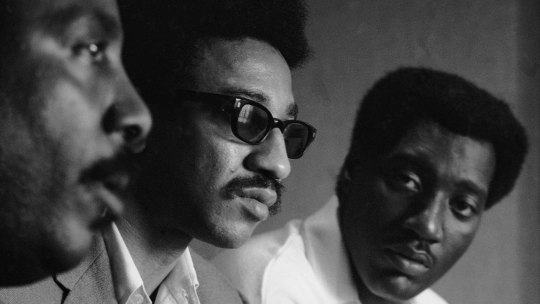
Jamil Abdullah al-Amin (born Hubert Gerold Brown; October 4, 1943), is an American human rights activist, Muslim cleric, African separatist, and convicted murderer who was the fifth chairman of the Student Nonviolent Coordinating Committee (SNCC) in the 1960s. Best known as H. Rap Brown, he served as the Black Panther Party's minister of justice during a short-lived (six months) alliance between SNCC and the Black Panther Party.
He is perhaps known for his proclamations during that period, such as that "violence is as American as cherry pie", and that "If America don't come around, we're gonna burn it down." He is also known for his autobiography, Die Nigger Die! He is currently serving a life sentence for murder following the shooting of two Fulton County, Georgia, sheriff's deputies in 2000.

Brown's activism in the civil rights movement included involvement with the Student Nonviolent Coordinating Committee (SNCC). Brown was introduced into SNCC by his older brother Ed. He first visited Cambridge, Maryland with Cleveland Sellers in the summer of 1963, during the period of Gloria Richardson's leadership in the local movement. He witnessed the first riot between whites and blacks in the city over civil rights issues, and was impressed by the local civil rights movement's willingness to use armed self-defense against racial attacks.
Brown later organized for SNCC during the 1964 Mississippi Freedom Summer, while transferring to Howard University for his studies. Representing Howard's SNCC chapter, Brown attended a contentious civil rights meeting at the White House with President Lyndon B. Johnson during the Selma crisis of 1965 as Alabama activists attempted to march for voting rights.
Major federal civil rights legislation was passed in 1964 and 1965, including the Voting Rights Act, to establish federal oversight and enforcement of rights. In 1966, Brown organized in Greene County, Alabama to achieve African voter registration and implementation of the recently passed Voting Rights Act.
Elected SNCC chairman in 1967, Brown continued Stokely Carmichael's fiery support for "Black Power" and urban rebellions in the Northern ghettos.
During the summer of 1967, Brown toured the nation, calling for violent resistance to the government, which he called "The Fourth Reich". "Negroes should organize themselves", he told a rally in Washington, D.C., and "carry on guerilla warfare in all the cities." They should, "make the Viet Cong look like Sunday school teachers." He declared, "I say to America, Fuck it! Freedom or death!"

In this period, Cambridge, Maryland had an active civil rights movement, led by Gloria Richardson. In July 1967 Brown spoke in the city, saying "It's time for Cambridge to explode, baby. Black folks built America, and if America don't come around, we're going to burn America down." Gunfire reportedly broke out later, and both Brown and a police officer were wounded. A fire started that night and by the next day, 17 buildings were destroyed by an expanding fire "in a two-block area of Pine Street, the center of African-American commerce, culture and community." Brown was charged with inciting a riot, due to his speech.
Brown was also charged with carrying a gun across state lines. A secret 1967 FBI memo had called for "neutralizing" Brown. He became a target of the agency's COINTELPRO program, which was intended to disrupt and disqualify civil rights leaders. The federal charges against him were never proven.
He was defended in the gun violation case by civil rights advocates Murphy Bell of Baton Rouge, the self-described "radical lawyer" William Kunstler, and Howard Moore Jr., general counsel for SNCC. Feminist attorney Flo Kennedy also assisted Brown and led his defense committee, winning support for him from some chapters of the National Organization for Women.
The Cambridge fire was among incidents investigated by the 1967 Kerner Commission. But their investigative documents were not published with their 1968 report. Historian Dr. Peter Levy studied these papers in researching his book Civil War on Race Street: The Civil Rights Movement in Cambridge, Maryland (2003). He argues there was no riot in Cambridge. Brown was documented as completing his speech in Cambridge at 10 pm July 24, then walking a woman home. He was shot by a deputy sheriff allegedly without provocation. Brown was hastily treated for his injuries and secretly taken by supporters out of Cambridge.
Later that night a small fire broke out, but the police chief and fire company did not respond for two hours. In discussing his book, Levy has said that the fire's spread and ultimate destructive cost appeared to be due not to a riot, but to the deliberate inaction of the Cambridge police and fire departments, which had hostile relations with the African community. In a later book, Levy notes that Brice Kinnamon, head of the Cambridge police department, said that the city had no racial problems, and that Brown was the "sole" cause of the disorder, and it was "a well-planned Communist attempt to overthrow the government."
While being held for trial, Brown continued his high-profile activism. He accepted a request from the Student Afro-American Society of Columbia University to help represent and co-organize the April 1968 Columbia protests against university expansion into Harlem park land in order to build a gymnasium.
He also contributed writing from jail to the radical magazine Black Mask, which was edited and published by the New York activist group Up Against the Wall Motherfucker. In his 1968 article titled "H. Rap Brown From Prison: Lasima Tushinde Mbilashika", Brown writes of going on a hunger strike and his willingness to give up his life in order to achieve change.
Brown's trial was originally to take place in Cambridge, but there was a change of venue and the trial was moved to Bel Air, Maryland, to start in March 1970. On March 9, 1970, two SNCC officials, Ralph Featherstone and William ("Che") Payne, died on U.S. Route 1 south of Bel Air, when a bomb on the front floorboard of their car exploded, killing both occupants. The bomb's origin is disputed: some say the bomb was planted in an assassination attempt, and others say Payne was carrying it to the courthouse where Brown was to be tried. The next night, the Cambridge courthouse was bombed

Brown disappeared for 18 months. He was posted on the Federal Bureau of Investigation's Ten Most Wanted List. He was arrested after a reported shootout with officers in New York City following an alleged attempted robbery of a bar there. He was convicted of robbery and served five years (1971–76) in Attica Prison in western New York state. While in prison, Brown converted to Islam. He formally changed his name from Hubert Gerold Brown to Jamil Abdullah al-Amin.
After his release, he moved to Atlanta, Georgia, where he opened a grocery store. He became an imam, a Muslim spiritual leader, in the National Ummah, one of the nation's largest African Muslim groups. He also was a community activist in Atlanta's West End neighborhood. He preached against drugs and gambling. It has since been suggested that al-Amin changed his life again when he became affiliated with the "Dar ul-Islam Movement"

On May 31, 1999, al-Amin was pulled over while driving in Marietta, Georgia by police officer Johnny Mack for a suspected stolen vehicle. During a search, al-Amin was found to have in his pocket a police badge. He also had a bill of sale in his pocket, explaining his possession of the stolen car, and he claimed that he had been issued an honorary police badge by Mayor John Jackson, a statement which Jackson verified. Despite this, al-Amin was charged with speeding, auto theft and impersonating a police officer.
On March 16, 2000, in Fulton County, Georgia, Sheriff's deputies Ricky Kinchen and Aldranon English went to al-Amin's home to execute an arrest warrant for failing to appear in court over the charges. After determining that the home was unoccupied, the deputies drove away and were shortly passed by a black Mercedes headed for the house. Kinchen (the more senior deputy) noted the suspect vehicle, turned the patrol car around, and drove up to the Mercedes, stopping nose to nose. English approached the Mercedes and told the single occupant to show his hands. The occupant opened fire with a .223 rifle. English ran between the two cars while returning fire from his handgun, and was hit four times. Kinchen was shot with the rifle and a 9 mm handgun.
The next day, Kinchen died of his wounds at Grady Memorial Hospital. English survived his wounds. He identified al-Amin as the shooter from six photos he was shown while recovering in the hospital[citation needed] Another source said English identified him shortly before going into surgery for his wounds.
After the shootout, al-Amin fled Atlanta, going to White Hall, Alabama. He was tracked down by U.S. Marshals who started with a blood trail at the shooting site, and arrested by law enforcement officers after a four-day manhunt. Al-Amin was wearing body armor at the time of his arrest. He showed no wounds. Officers found a 9 mm handgun near his arrest site. Firearms identification testing showed that this was used to shoot Kinchen and English, but al-Amin's fingerprints were not found on the weapon. Later, al-Amin's black Mercedes was found with bullet holes in it.
His lawyers argued he was innocent of the shooting. Defense attorneys noted that al-Amin's fingerprints were not found on the murder weapon, and he was not wounded in the shooting, as one of the deputies said the shooter was. A trail of blood found at the scene was tested and did not belong to al-Amin or either of the deputies. A test by the state concluded that it was animal blood, but these results have been disputed because there was no clear chain of custody to verify the sample and testing process. Deputy English had said that the killer's eyes were gray, but al-Amin's are brown.
At al-Amin's trial, prosecutors noted that he had never provided an alibi for his whereabouts at the time of the shootout, nor any explanation for fleeing the state afterward. He also did not explain why the weapons used in the shootout were found near him during his arrest.
On March 9, 2002, nearly two years after the shootings, al-Amin was convicted of 13 criminal charges, including Kinchen's murder and aggravated assault in shooting English. Four days later, he was sentenced to life in prison without possibility of parole (LWOP).He was sent to Georgia State Prison, the state's maximum-security facility near Reidsville, Georgia.
Otis Jackson, a man incarcerated for unrelated charges, claimed that he committed the Fulton County shootings, and confessed this two years before al-Amin was convicted of the same crime. The court did not consider Jackson's statement as evidence. Jackson's statements corroborated details from 911 calls following the shooting, including a bleeding man seen limping from the scene: Jackson said he knocked on doors to solicit a ride while suffering from wounds sustained in the firefight with deputies Kinchen and English. Jackson recanted his statement two days after making it, but later confessed again in a sworn affidavit, stating that he had only recanted after prison guards threatened him for being a "cop killer". Prosecutors refuted Jackson's testimony, claiming he couldn't have shot the deputies as he was wearing an ankle tag for house confinement that would have showed his location. Al-Amin's lawyers allege that the tag was faulty.
Al-Amin appealed his conviction on the basis of a racial conspiracy against him, despite both Fulton County deputies being black. In May 2004, the Supreme Court of Georgia unanimously ruled to uphold al-Amin's conviction.
In August 2007, al-Amin was transferred to federal custody, as Georgia officials decided he was too high-profile for the Georgia prison system to handle. He was first held in a holdover facility in the USP Atlanta; two weeks later he was moved to a federal transfer facility in Oklahoma, pending assignment to a federal penitentiary.
On October 21, 2007, al-Amin was transferred to ADX Florence, a supermax prison in Florence, Colorado. He has been under an unofficial gag order, prevented from having any interviews with writers, journalists or biographers.
On July 18, 2014, having been diagnosed with multiple myeloma, al-Amin was transferred to Butner Federal Medical Center in North Carolina. As of March 2018, he is incarcerated at the United States Penitentiary, Tucson.
Al-Amin sought retrial through the 11th Circuit Court of Appeals. Investigative journalist, Hamzah Raza, has written more about Otis Jackson's confession to the deputy shootings in 2000, and said that this evidence should have been considered by the court. It had the potential of exonerating al-Amin. However, the 11th Circuit Court of Appeals rejected his appeal on July 31, 2019.
In April 2020, the U.S. Supreme Court declined to hear an appeal from al-Amin. His family and supporters continue to petition for a new trial.
#african#afrakan#kemetic dreams#africans#brownskin#brown skin#afrakans#african culture#afrakan spirituality#h rap brown#Jamil Abdullah al-Amin#Black Panther Party#black panthers#kwame ture#fred hampton#civil rights#civil rights movement#malcolm x
84 notes
·
View notes
Text
Caprimulgus ritae King et al., 2024 (new species)

(A male individual of Caprimulgus ritae photographed by James Eaton, from King et al., 2024)
Meaning of name: ritae = for Rita Bobbin [friend of the study's lead author, Ben F. King]
Suggested common name: Timor nightjar
Age: Holocene (Meghalayan), extant
Where found: Primarily in lowland forests on the islands of Timor and Wetar
How much is known: At least four collected specimens (two males and two females) are held in museum collections. A fifth specimen, an immature individual, may also belong to this species, but this has not been verified by genetic analysis.
Notes: Caprimulgus is a genus of nightjars, a group of nocturnal, insect-eating birds. Nightjars typically spend the day camouflaged against the ground and use their wide mouths to capture flying insects at night.
C. ritae is closely related to the Mees's nightjar (C. meesi) from the islands of Flores and Sumba, and the large-tailed nightjar (C. macrurus), which is found across South Asia, Southeast Asia (though not Timor or Wetar), and northern Australia. In addition to being genetically distinct and geographically separated from its close relatives, C. ritae is smaller than them on average. It can also be distinguished by its vocalizations and details of plumage patterning, such as having darker brown feathers on the sides of its face.
Reference: King, B.F., G. Sangster, C.R. Trainor, M. Irestedt, D.M. Prawiradilaga, and P.G.P. Ericson. 2024. A new species of nightjar (Caprimulgus) from Timor and Wetar, Lesser Sunda Islands, Wallacea. Ibis advance online publication. doi: 10.1111/ibi.13340
91 notes
·
View notes
Text
Hey hey!! Making a post on behalf of @olasfamily.
“Hello, I'm Ola, a graduate student from the faculty of science - Al-Azhar University in Gaza Palestine. I truly appreciate you taking a moment to read my story.
As you reading my message, myself and my family, “my mother, father, three sisters, and my little brother,” are fighting death in northern Gaza and trying to survive under all kinds of suffering including but not limited to destruction, fear, and instability, starvation, thirst, and poverty.”
#free palestine#free gaza#gaza#palestine#gaza strip#gaza genocide#gazaunderattack#from the river to the sea palestine will be free#news on gaza#save gaza
26 notes
·
View notes
Text


In 1047 BCE, a confederation of Hebrew tribes came together to found the Kingdom of Israel, the first ever unified, sovereign nation state in the history of the land. Though some historians have cast doubt on the existence of a unified Israelite state, in recent years, more and more archeological evidence has suggested that some form of unified state existed, though its grandiosity as depicted in the Torah is contested.
In 930 BCE, the Kingdom of Israel split into two: the Kingdom of Israel to the north, also known as Samaria (after its capital “Shomron,” or Samaria in English), and the Kingdom of Judah to the south. The term “Jew” comes from “Judahite,” as in, “someone from the Kingdom of Judah.” In Hebrew, the words for “Judahite” and “Jew” are the same word: Yehudi.
Our closest ethnoreligious brothers, Samaritans (or Shomronim in Hebrew), are the descendants of the citizens of the northern Israelite kingdom.
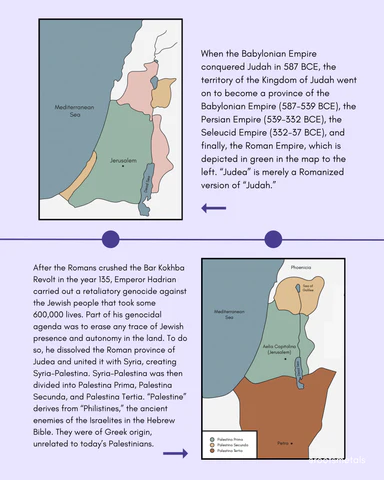
When the Babylonian Empire conquered Judah in 587 BCE, the territory of the Kingdom of Judah went on to become a province of the Babylonian Empire (587-539 BCE), the Persian Empire (539-332 BCE), the Seleucid Empire (332-37 BCE), and finally, the Roman Empire, which is depicted in green in the map to the left. “Judea” is merely a Romanized version of “Judah.”
After the Romans crushed the Bar Kokhba Revolt in the year 135, Emperor Hadrian carried out a retaliatory genocide against the Jewish people that took some 600,000 lives. Part of his genocidal agenda was to erase any trace of Jewish presence and autonomy in the land. To do so, he dissolved the Roman province of Judea and united it with Syria, creating Syria-Palestina. Syria-Palestina was then divided into Palestina Prima, Palestina Secunda, and Palestina Tertia. “Palestine” derives from “Philistines,” the ancient enemies of the Israelites in the Hebrew Bible. They were of Greek origin, unrelated to today’s Palestinians.
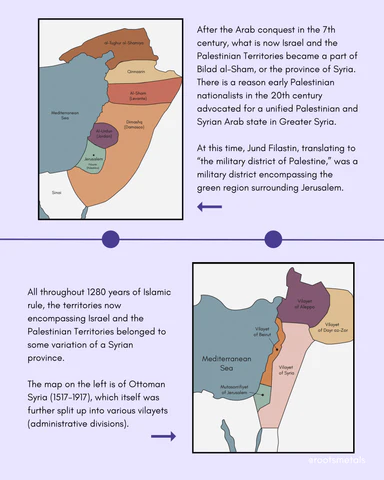
After the Arab conquest in the 7th century, what is now Israel and the Palestinian Territories became a part of Bilad al-Sham, or the province of Syria. There is a reason early Palestinian nationalists in the 20th century advocated for a unified Palestinian and Syrian Arab state in Greater Syria.
At this time, Jund Filastin, translating to “the military district of Palestine,” was a military district encompassing the green region surrounding Jerusalem.
All throughout 1280 years of Islamic rule, the territories now encompassing Israel and the Palestinian Territories belonged to some variation of a Syrian province.
The map on the left is of Ottoman Syria (1517-1917), which itself was further split up into various vilayets (administrative divisions).
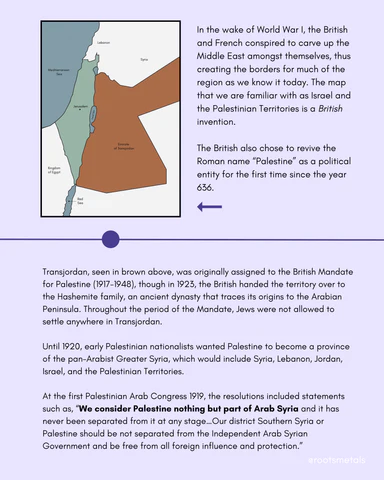
In the wake of World War I, the British and French conspired to carve up the Middle East amongst themselves, thus creating the borders for much of the region as we know it today. The map that we are familiar with as Israel and the Palestinian Territories is a British invention.
The British also chose to revive the Roman name “Palestine” as a political entity for the first time since the year 636.
Transjordan, seen in brown above, was originally assigned to the British Mandate for Palestine (1917-1948), though in 1923, the British handed the territory over to the Hashemite family, an ancient dynasty that traces its origins to the Arabian Peninsula. Throughout the period of the Mandate, Jews were not allowed to settle anywhere in Transjordan.
Until 1920, early Palestinian nationalists wanted Palestine to become a province of the pan-Arabist Greater Syria, which would include Syria, Lebanon, Jordan, Israel, and the Palestinian Territories.
At the first Palestinian Arab Congress 1919, the resolutions included statements such as, “We consider Palestine nothing but part of Arab Syria and it has never been separated from it at any stage…Our district Southern Syria or Palestine should be not separated from the Independent Arab Syrian Government and be free from all foreign influence and protection.”
ORIGINS OF ISRAEL
The earliest known mention of “Israel” in history — and the earliest mention of Israel outside of the Torah — is 3200 years old and was discovered in Thebes, Egypt, in 1896.
The mention is found in what is known as the Merneptah Stele, an inscription by the ancient Egyptian pharaoh Merneptah, who reigned between 1213 BCE to 1203 BCE. The Stele itself is dated to 1208 BCE. It’s written in ancient Egyptian hieroglyphs.
The Merneptah Stele mainly describes Merneptah’s victory over the ancient Libyans. However, three of the 28 lines talk about a separate Egyptian military campaign in Canaan. It reads:
“The Canaan has been plundered into every sort of woe:
Ashkelon has been overcome;
Gezer has been captured;
Yano’am is made non-existent.
Israel is laid waste and his seed is not;
Hurru is become a widow because of Egypt.”
The hieroglyphs used describe Ashkelon, Gezer, and Yano’am as city-states, whereas “Israel” is described as a foreign (to Egypt) people. This suggests that at this point in time, the Israelites did not rule over a unified state, but rather, were a nomadic or semi-nomadic tribe(s). This would corroborate the narrative of the Torah, as the Kingdom of Israel did not become a unified state until some 161 years later.
As a side note, it’s interesting that the first ever mention of Israel in history comes from a ruler bragging about our supposed destruction. Over three millennia later, here we are.
In 1040 BCE, a loose confederation of Hebrew tribes united to form the first centralized state in the Land of Israel, known as the Kingdom of Israel.
The Hebrew tribes originated -- and later split away -- from the Canaanites, a loose group of semi-nomadic tribes that lived during the second millenium BCE; they were the original inhabitants of the Land of Israel. Though depicted as the enemies of the Israelites in the Torah, archeologists, linguists, Biblical historians, and geneticists today widely agree that the ancient Hebrews were originally Canaanites themselves. The Tanakh itself even makes some vague references to the Hebrews’ Canaanite origins. Ezekiel 16:3 tells us, “Thus said the sovereign God to Jerusalem: by origin and birth you are from the land of the Canaanites — your father was an Amorite and your mother a Hittite.” The Amorites were a Canaanite people.
It was customary at the time and in the region for nations to name themselves after their most important deities. For example, Israel’s neighboring Assyria named itself after the Mesopotamian deity “Ashur.” “El” was the most important god in the Canaanite pantheon; over time, the cult of El and of the southern deity YHWH merged to form the Hebrew God as we know Him today. “Israel,” then, translates to “one who wrestles with El [that is, God].”
Until 1948, the United Kingdom of Israel (1047-930 BCE), the southern Kingdom of Israel (930-722 BCE), and the Kingdom of Judah (930-587 BCE) were the only ever sovereign nation states in the entirety of the land’s history. At all other times, the region was a colony, vassal state, or province of some foreign empire whose administrative center was elsewhere. The founding of the State of Israel in 1948 marked the first time that the land belonged to a fully sovereign, independent state in over 2500 years.
ORIGINS OF PALESTINE
Historians have long debated the origins of the name “Palestine.” Most believe that the word derives from the Hebrew and Ancient Egyptian word “peleshet,” translating to “invader” or “migratory.” “Peleshet” was used to describe the Philistines, who settled on the Mediterranean coastline above Egypt, in parts of what is now Israel and Gaza. The Philistines were a seafaring people of Greek origin, entirely unrelated to today’s Palestinians, who are an Arab ethnonational group. Some Palestinians, particularly Christian Palestinians and Palestinians from the city of Nablus, have Jewish and Samaritan ancestry, respectively.
The first use of the word “Palestine” to describe a geographic region was in the 5th century BCE, at least 700 years after the first use of the word “Israel.” Like the Land of Israel, “Palestine” was a loose region, describing the coastal strip that runs from Egypt to Lebanon. However, unlike “Israel,” Palestine was not a political entity until the Romans renamed Judea “Syria-Palestina” in the second century CE.
Another, newer, more controversial theory asserts that “Palestine” derives from the Greek word “Palaistes,” meaning “wrestler.” If you recall, the term “Israel” means “one who wrestles with God.” According to this theory, “Palestine” is a direct Greek translation of “Israel.”
For hundreds of years, the term “Palestinian” was virtually synonymous with “Jew.” In the 18th century, for example, Immanuel Kant described the Jews in Europe as “the Palestinians among us.” In the early 20th century, Jews used “free Palestine” as a rallying call to establish a Jewish state.
The first Arab Palestinian to identify as Palestinian was Khalil Beidas in 1898, though the term was not universally used until the 1960s. During the 1937 Peel Commission, Palestinian Arab nationalist Anwi Abd al-Hadi told the British, “Palestine is a term the Zionists invented!”
WHY IS THE STATE OF ISRAEL "ISRAEL"?
Though the second Kingdom of Israel was conquered by the Assyrians in 722 BCE, both Jews and Samaritans continued referencing to the land as “Eretz Israel,” or the Land of Israel, for three millennia. When the Maccabees briefly gained a semblance of independence after the Maccabean Revolt (167-141 BCE), they referred to their new semi-autonomous kingdom as “Judea” and “Israel” interchangeably. During the Bar Kokhba Revolt against the Roman Empire (132-135 CE), the revolt leader, Simon Bar Kokhba, was known as the “prince of Israel.”
Even during the British Mandate (1917-1948), the official name of Palestine was the “British Mandate of Palestine (Aleph Yud).” Aleph Yud are the letters corresponding to the abbreviation for “Eretz Israel,” the Land of Israel.
Even so, most assumed that the new Jewish state would be called “Judea,” or “Yehuda” in Hebrew. In 1949, on the first anniversary of the State of Israel, Zeev Sharef, who had been present during the deliberations, explained why the name “Judea” was quickly discarded: “Most people had thought that the state would be called Judea. But Judea is the historical name of the area around Jerusalem, which at that time seemed the area least likely to become part of the state...So Judea was ruled out.”
The Provisional Government of the State of Israel also spent some time deliberating on what the name for the country would be in Arabic. Initially they considered Palestine, or "Filastin" in Arabic, to "take the feelings of the Arab minority into account." But the idea seemed too confusing, because they assumed an Arab state would be established alongside the Jewish state, and that Arab state would likely be called Palestine. As such, the idea was discarded. Instead, Israel is called "Isra'il" in Arabic.
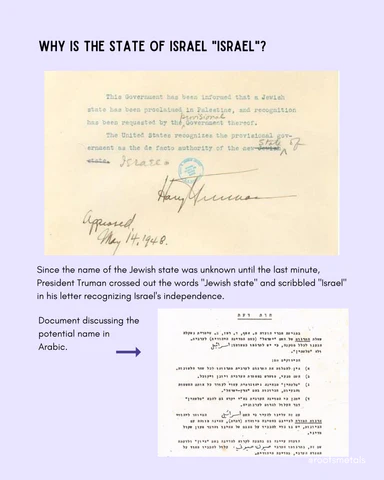
Since a lot of you guys seem to have a problem with reading comprehension, let me comprehend this for you: the point of this post is *not* to say only Jews have a right to live in the land, or to say that I unequivocally support everything the Israeli government has done, is doing, & will continue to do forever into eternity.
the point is: (1) the idea that Israel is “colonial” is ahistorical & antisemitic because it is a blatant erasure of Jewish history & identity, (2) the idea that Palestine is “anti-colonial” is also ahistorical and also an erasure of Jewish history, & (3) the “river and the sea” that you’re so damn attached to in the name of “anti-imperialism”?Yeahhhh those borders were a British invention.
For a full bibliography of my sources, please head over to my Instagram and Patreon.
28 notes
·
View notes
Text

LADY ALYS MORMONT of BEAR ISLAND !

( marina moschen / demi woman + she/they ) hear ye hear ye — king garlan tyrell welcomes ALYS MORMONT of BEAR ISLAND ! his great majesty is glad that the twenty three year old noble appears to be gallant while overlooking that it’s said they are also insecure, as long as they are glad to celebrate peace in the seven kingdoms. fortunately for them, garlan remains oblivious that they are happy with his reign and that their true allegiance lies with the north.
one - basic information.
full name: alys mormont. preferred nickname: al / alys. official title: lady of bear island. monikers: little bear / she bear. age: twenty three. gender + pronouns: demi woman + she/they. orientation: lesbian. true allegiances: house mormont, house stark & the north. spoken languages: common tongue. religion: the old gods.
two - exterior.
looks like: marina moschen. eye color: brown. hair color: dark brown. dominant hand: right. height: 5'6" build: slim.
three - interior.
virtues: gallant, incorruptible, adroit, honorable, compassionate. vices: insecure, overwrought, naive, vulnerable, cautious. weapon of choice: longsword or their dagger. moral alignment: lawful good. hobbies: weapons training / watching others train, horseback riding, exploring, horseshoes, climbing trees.
four - connections.
parents: liege utp mormont & liege utp mormont. siblings: mormont c & mormont d. birth order: youngest. relationship status: single. children: none. pets: though not considered a pet but more of a companion, alys' trusted steed is a brown thoroughbred named bear. other relations: none atm, would love cousins for house mormont ! past relations: none atm !
five - background.
born on the twentieth day of the seventh moon in the year 275 after conquest, alys mormont was the last child to grace the ruling couple of bear island. even as a child, she never displayed the same fierceness that house mormont was known for yet still found a way to hold her own. muscles did not appear nor did the impressive strength those around them seemed to possess, leading to insecurities about their stature and where they lack in battle. some lords were cruel in their victories and they managed to make alys' confidence waver, wondering if she could ever be a historic knight or warrior one day. they have always dreamed of looking different and shedding many of their feminine features but are proud of their identity. as alys got older, she learned how to turn her appearance into a likely opportunity to be underestimated - which sometimes works in her favor.
while she can bite if provoked ( do not poke the bear vibes ), there isn't much bark to alys. her idealism can be faulty when harsh reality rolls in, but she's always dreaming of being the best version of herself she can be. her heart has always belonged with the north, raised on stories of heroic northerners and the honor of what that meant. alys was thankful the women of house mormont were not forced to partake in ladylike hobbies as they had never been good at them. their talents remained in being one of the faster children, off in a blink and always on the move. curiosity helped propel them and they were always interested in learning what others were doing.
though bear island was home, there became a feeling of suffocation the longer alys stayed. they loved to travel and explore, seeing the beauty of the north, feeling as if there was nothing for them on bear island. family means a great deal to them but alys has always been driven by purpose, their purpose becoming duty as they got older. in her teens, she was a squire for a northern lord, collecting achievements such as winning horse races, foot races, duels, and never failing to be there when they were needed. knighthood has always been a dream and they still seek it now, even if plans have changed quite a bit. if there is anything to be learned from being a mormont, it is that anything is possible.
for the past year, alys has been working in the service of house stark as a guard in winterfell. after an incident while traveling, alys decided to stay within familiar surroundings for a while and after spending a bit of time in winterfell, they figured that working for house stark would be quite the honor. she spends most of her days training in the yard and up top the winterfell towers, though occasionally does errands for the house as she is now as trusted as the others. there are talks of them becoming a sworn sword for someone, as alys has become a favorable companion, though they would go wherever they're instructed.
anyone who knows alys knows they will always lend a helping hand. sometimes they will go above and beyond to do the right thing even if it is at the cost of their own happiness. an extrovert 100% yet needs quiet time after a while. loves to joke around and find the good side of every situation, much to the annoyance of those around her. has absolutely no interest in politics or anything really going on in westeros and kind of prefers that the trifecta is thriving in their own lil bubble. just wants to do good and honorable things.
more headcanons :
before she had turned double digits, alys had been gifted not toys nor dolls but a custom dagger with her house's sigil burned into the handle. it is their most prized possession and alys never goes anywhere without it. she keeps it hidden in her boot most often, yet sometimes has the dagger on her belt along with her sword.
is incredibly sentimental with trinkets and gifts. alys has never discarded a gift and keeps many trinkets in both their bedchambers and on their person. one is a piece of wood that has been whittled into a bear standing up and roaring - which reminds her of house mormont's words every time she looks at the object. they keep a coin purse full of differently colored stones tied to their belt and twice now someone has tried to steal it thinking it's full of coins... both times they've opened the contents to only throw the pouch back at alys with cruel words.
can do cartwheels and back flips but will probably only say yes if she's a little drunk.
six - wanted.
besties - could be northern, could be someone they met through travels, could be anyone really ! just a couple ppl alys is besties with, meaning they definitely trust each other and probably either spend the most time together or talk to each other / send ravens incredibly frequently.
idols they aspire after - probably older, more experienced swordsmen / knights who alys has been inspired by and looks up to quite a bit !
the eventual sworn shield position - ( this will be a wc at some point ) alys is a trusted guard in winterfell and is about to be promoted ( you have been promoted !! you are now one of my elite employees !! ) to be someone's sworn shield ! it's most likely this would be a house stark member or someone from a wealthy northern house as she is still apart of the winterfell guard !
unlikely friends, past flings, a bad influence on alys, frenemies, i am down for anything !!
7 notes
·
View notes
Text
Qȳbor & Trēsy: A Night Out
A Starter with @goldaegontargaryen

The tavern in Flea Bottom was a far cry from the opulent halls of the Red Keep. Flickering candles cast a dim, uneven light across the room, revealing the worn wooden tables and benches that have seen countless patrons over the years. The air was thick with the smell of cheap ale and roasted meat, mingling with the sweat of the tavern’s rough clientele. Lucerys sat uncomfortably at a table in the corner, his cloak pulled tight around him as if it could shield him from the unfamiliar surroundings. Although a tiny voice in the back of his mind reminded him that it was not like anyone would recognize him.
Just another brown hair, brown-eyed bast-. Lucerys stopped the thought with a deeper-than-usual swig of ale.
Lucyers had never been one for the noisy, boisterous environment of taverns. Honestly, sometimes dinner with the whole with all the Targaryen, Velaryon, and Hightower family was too much for him. He preferred the quiet solitude of his chambers, the vast expanse of the open sea, or the sky above on dragonback. Tonight, however, was different. He was here, in this crowded and bustling tavern, because his uncle, Aegon, had insisted they meet away from the prying eyes of the court. Luce had agreed, wanting to prove to himself that he could handle such situations, that he was more than just a sheltered prince. He agreed because this was something that he would regularly avoid. He agreed because he thought his fathers would be happy to see him on such an outing and his mother would be displeased. But now, sitting in the dimly lit tavern, he couldn’t help but question his decision.
Between the clamor of laughter and clinking of tankards, Lucerys felt out of place. He notices the curious glances from the other patrons, their eyes lingering a moment too long on him. He wondered what was catching their eyes. Is his clothing too nice? Is his decorum too noble? Luce didn’t know. He didn’t have the white hair or violet eyes that clearly marked him of noble blood, but that does not mean he was not recognized. Every look at him, followed by a hushed rush of voices, set him on edge. He knew of the numerous rumors that swirled around him, whispers about his parentage to his lack of interest in women.
It wasn’t that he wasn’t interested in women; he just was not interested in visiting Silk Street like his uncles and his father did in his prime. He was also somewhat terrified of what his mother would do if she heard whispers of his presence in brothels. Yet he found himself almost wanting to test her anger. He had always been close to his mother, Princess Rhaenyra, heir to the Iron Throne, Hand of the King, but with her impending ascent to the throne, he felt a growing distance. His older brother Jace was her heir in turn, leaving Lucerys as little more than a spare. His title as the heir to Driftmark felt hollow, a place he barely knew compared to the familiar of King’s Landing. He loved his mother and his sibling dearly, but he was beginning to understand that his future lay outside of King’s Landing and beyond his parents and siblings.
He took another sip of the ale and tried to hide his grimace. Luce had ordered the ale to better fit into the setting, but he preferred Arbor Golds or northern meads.
In contrast, Aegon had always been a bit of a wild card. He was known for his unpredictable nature and love for revelry, although he mellowed in recent years since his marriage to Helaena. Aegon was the antithesis of Luce. Outgoing where he was reserved, extroverted where he was introspective. Earlier, Aegon had seemed determined to pull Lucerys out of his shell to show. It seemed that tonight Aegon wanted to show him a side of life he had always avoided. But as Lucerys sat in the corner, he found himself overwhelmed by the noise, the smells, and the scrutiny of the tavern’s patrons.
Beside him, Aegon sat nursing a tankard of ale, his movements languid and unhurried. The lights from the candles highlighted the sharp angles of Aegon’s face, casting shadows that made him appear both regal and roguish. He seemed perfectly at ease in this setting, as if the noise and chaos of the tavern were a familiar friend. He embodies a confidence that Lucerys envied.
Taking a deep breath, Lucerys decided it was time to break the silence, to voice the question that had been swirling in his mind since they sat down.
“Qȳbor,” Uncle, he said hesitantly, his voice barely above the din of the tavern, “What do you truly want from me tonight? Why bring me here, away from the prying eyes of the Red Keep?”


A Roleplay Blog within @asongofgoldenfireandblackblood
Main • Message • Plot • Questions & Answers
#Qȳbor & Trēsy#lucerys valeryon rp#my threads#asongofgoldenfireandblackblood#asongofgf&bb#asongofgf&bbstarter#rp starter#rp#hotd rp#hotd au rp#rp blog#roleplay#house of the dragon#asoiaf#asoiaf roleplay#house of the dragon roleplay
6 notes
·
View notes
Text
MODS DE PERSONALIZACIÓN - CAS | LOS SIMS 4
Más rasgos en CAS.
Cambiar el ícono de contenido personalizado del CAS. (Recomiendo elegir solo una)
1 | CC Wrench override - Patch 1.105 2 | Tidy details & Tidy tattoos by sparrow's cc
Pantalla de carga.
Loading Screen - Pink Kitten by Tiasha-sims | 1 Gradient Loading Screen by Tiasha-sims | 2 Cozy Lo-fi Loading Screen by Tiasha-sims | 3
Fondos de CAS
Old school - CAS Room Override by littledica | 1 Background by Antoniocas | 2 cas background dum by sinnsims | 3 brown-edition-cas by shasims | 4 nature edition by shasims | 5 Reflection by vyxated | 6
Iluminación en el CAS. (Ten en cuenta que estos mods pueden interferir entre ellos, así que asegúrate de descargar solo uno)
FrontGlo by vyxated | 1 CAS Lighting by SimplyAnjuta | 2 Gentle CAS Lighting MOD by northern Siberia winds | 3
Mas columnas en el CAS.
Quitar el mosaico de censura.
MOD CAS - Sin maquillaje ni accesorios en sims aleatorios.
Pose al quedarse quieto en el CAS
Stand Still in CAS by helgatisha | 1 (Recomendado) Stand Still in CAS by Mizore Yukii | 2 Stand Still in CAS by EllieMaySims | 3
Control de posición de sim. (Compatible con cualquier "Stand Still In CAS")
2 notes
·
View notes
Text
in eternal bloom - elucien one shot

Summary: On the quest to find the sixth mortal queen, Lucien Vanserra meets a human with brown eyes and that same stubborn Archeron nose. Together, on their search for Vassa, Lucien befriends Elain’s father, and learns a bit more about his mate.
Rating: G
Word count: 5.4k
Read on AO3
in eternal bloom
Looking back, Lucien could only attribute fate’s nimble hands to piecing together his journey to the Continent. A deliberate thread that tied his story closer to the fabric of whatever it was meant to be with his Cauldron-blessed mate.
It is how he found himself somewhere in the borders of the mortal lands, an eastern port on the outskirts of Scythia. The land of the sixth queen. He sucked in a breath as he pulled a hood over his head, glamour and shadows hiding his fae ears, golden eye, and molten hair from the onlookers in the human territory. He was both quick and quiet, as if his boots glided over the wet stones, his heightened hearing picking up fragments throughout the crowd and rumble of merchants, sailors, and drunkards. It was a pulsing town of trade and Lucien was a merchant of whispers and secrets without even opening his mouth.
He had to duck slightly to fit through the human doorway of the White Horse Tavern. Lucien moved slowly, careful not to attract any unnecessary attention, but the moon was high and the ale was flowing as pints passed through hands. His eyes landed on the stare of dark brown eyes, sitting in the corner, as if waiting for his arrival.
Lucien slid into the chair across from him. “The word in town is you are in need of a mercenary to find the supposed Queen Vassa.”
He eyed the human scrupulously now before him. This was his best lead so far in the vast Continent, the closest he could determine to help him find the sixth queen. This small, helpless human apparently had the answers--and Lucien would retrieve them. “I have also heard you have denied every offer so far. What can I do to convince you otherwise?”
The human man’s hands absently traced the rim of his glass, those fawn coat colored eyes unnerving, nearly familiar, as they sized Lucien up in return.
“I do not need to find her. I know where she is, in fact.”
The deep rumble from his throat surprised Lucien. He watched as the man shifted to pull what was undoubtedly a heavy bag of gold and slid it across the wooden table.
“I need you to take me into the faerie realm to retrieve her.” Lucien’s eyes flickered to the payment before him, then back at the bearded man. He had taken a risk allowing the human to see his face, but now he realized, every mercenary had been turned away because he had been waiting for someone preciscely like Lucien--a faerie who could venture into the northern lands beyond the wall.
“What are your intentions with the queen?” Lucien asked.
The man nodded, leaning forward to drop his voice to a whisper. “To build an army that will save my daughters.” It was as he spoke that Lucien’s golden eye whirred hurriedly, as if finally placing those brown eyes into the puzzle pieces of his memory, that proud nose he could recognize from anywhere--
“What is your name?” Lucien gripped the table, raising an eyebrow.
The human sat back, raised the ale to his lips to throw back what remained. He carefully wiped the edges of his mouth with the back of his hand. He gave a small smile, reaching across the table with an open hand.
“Arthur Archeron. And yourself?”
His mouth went dry, the noise of the pub suddenly flooding into his senses. But a small tug at his ribs, like the threading of a needle, moved his hand to reach across and clasp his hand. “Lucien,” he finally breathed. “Lucien Vanserra.”
He stood, their hands still locked together. “And I know your daughters, Arthur Archeron. I will do anything to protect them, so consider this a trade--allow me to help you find and retrieve this queen and her army, in return I will protect you with my life at no cost.”
The Prince of Merchants raised an eyebrow. “That is a rather terrible trade for yourself--”
But as they shook hands, whether Arthur Archeron realized it or not, a magic bargain bound them most permanently.
*
It was either cruel or a gift that Arthur’s face so closely resembled Elain’s. Lucien hadn’t made up his mind about fate’s hand yet as they began their journey on horseback.
They were fortunate as Scythia had the finest horses across the lands, strong, beautiful, and sturdy in their breed. The Archeron’s father had assembled a large fleet of ships, but their trek to an ominous lake, surrounded by dangerous mountains and forest in the fae lands, could only be accomplished by land. The worn map sat tightly between Arthur’s hands as they trotted on their horses. It would take at least a week of non-stop travel by Lucien’s estimations.
“What is your plan? For when you meet this powerful sorcerer keeping her?” Lucien’s voice did not hold malice or taunting, but genuine concern.
Arthur looked up from his map, folding the parchment carefully before tucking it into the inner layer of his coat. “I’m going to do what I always do--I’m going to make him a deal he can’t deny. My friend, do not worry yourself over that part, leave it to me. I simply need you to get me there alive.”
Lucien knew this man had never fought a battle or even a brawl a day in his life. His hands did not bear the markings of labor or training, his frame thin, and Lucien wasn’t sure he was even carrying a single dagger on this journey except his damn wood carving knife. Meanwhile he was still wearing the Illyrian leathers, several daggers hidden in various locations, a broad sword against his back, and more dangled from his pack. Had Elain seen this far? Had she known her father was weaved into this future?
“You have seen my daughters then? How are they?”
“They…” Lucien considered his words carefully, those brown eyes peering into him expectedly. “They have been through some great and terrible things. But they have survived. They are together now, fortunately. Feyre is my friend--she saved our kind. She saved me. I owe her very much, considering there were also many ways I failed her in return.”
“That makes two of us.” They mirrored a small, sad smile to each other. “Feyre is married to her mate now, in a great position of power. She is happy with him.”
“And Nesta?”
“She seems to be keeping it together for her sister’s sake, considering all things. I did not get the chance to know her,” Lucien admitted.
Arthur laughed, giving him a knowing look that they both understood as, actually she did not care to know you.
“And Elain--” Even the mention of her name from his lips sent a shudder up his spine. “She is getting better from what I have been told. She has lost so much and I can only imagine how difficult it has been. I did not get a chance to get to know her either, but--”
Lucien had to look away, towards the horizon, towards the faraway mountains they were after. “But I would like to, one day.” And even if the words she’s your mate, she’s your mate bore into his mind, he decided he would not tell her father, not on this journey, that it was not for him to share.
From where he sat on his horse, Lucien couldn’t see the way Arthur tilted his head, studying the fae’s profile, with only a whisper of a wind between them.
*
They continued on this way for days. Lucien had decided that the man was a pleasant companion after all; days on horseback entitled them to endless conversations and stories, from comparisons of the mortal and fae lands, his rather clever merchant negotiations, to embarrassing stories of his daughters that Lucien was indeed saving for the right opportunity. They spent nights by the fire, where Arthur either worked on various wood carvings, or they taught each other card games between sips of whiskey. The human was a rather terrible gambler, but always lost with a smile.
“I’d like to hear more about your daughters, in your own words.” Lucien found himself asking one night, poking a stick into the fire. Arthur looked up from whatever it was he was currently attempting to carve.
“Hmm,” the man scratched at his now rugged beard. “Let’s see. Nesta was our first born. She is the most like her mother, but softer around the edges if you can believe it. Nesta is calculating and cunning. She possesses a fierce type of love.” He set the wooden carving to the side, rubbing his hands together at the fire. “You seem to know Feyre rather well. She was always the bravest of us all. Brave, determined, and free spirited.”
Lucien nodded with a neutral face, hoping their father could not sniff out the anticipation on his face for the remaining daughter. The restraint to demand to know everything about her ached in his muscles. The longing he felt settled deep inside his bones.
“And…and Elain?” Lucien asked, when he caught the man staring at him from across the fire.
Arthur smiled. “Elain is filled with kindness and hope. She was my light in the darkest of times. A rarity in this world.”
When Lucien did not say anything in return, Arthur pressed on. “She was always the most social of her sisters. I had never met a servant or friend or suiter who did not come to love her--and certainly not one who could deny her anything.” There was a twinkle in his brown eyes, something soft and proud.
“She was to be married—” Lucien swallowed roughly, that primal anger pooling into his belly, that instinctual roar to claim, causing the fire to burn brighter and higher than before. If Arthur noticed, he did not show outwardly. With a wave of his hand, he cut Lucien’s thoughts off from further spiraling. “No, that Nolan boy won’t marry her once he knows the truth of what happened.”
If there had been time, Lucien would have turned the words over in his hands. He would have possibly let himself imagine a life where his mate could offer him something that had been hollowed out of him long ago--he would allow himself to consider how even the hint of kindness and hope made something in chest flutter with warmth like an awakening.
Before he could, three figures emerged from the darkness into his eye line.
*
Lucien snarled, fangs and all, as he reached for his broad sword. This was one of the many reasons Arthur Archeron was wise to bring him, he mulled. Three fae with swords growled back. Dangerous. These three were dangerous, hungry to kill a human, and eager to steal whatever they possessed on their backs.
These may have been foreign lands, but the rules were familiar. He could dance the dance of his kind. In a few steps, he stood before the human in question, who had sat frozen on the ground behind him.
“Hate to disappoint, but you’re not getting this one.”
Three swords pointed back at him. Without sparing a glance, he tossed one of his spare blades at Arthur’s feet. “You’re going to run now.”
Thank the Mother he had the good sense to grab the weapon and scramble further into the woods without further command.
*
It did not take long for Lucien to find him--he only had to follow the scent of fear.
With a grunt, he stepped to the top of a boulder, to peer down where Arthur was crouching behind a tangle of roots and rocks, the blade shaking in his hand. “Lucien!” He exclaimed, relief flooding his features. Lucien jumped down to meet him below, placing a bloodied blade into its sheath.
“You did not leave me?” Arthur asked.
“I am a male of my word,” Lucien smirked. “I made a deal with the Prince of Merchants. I intend to keep it.”
They laughed, the human patting him on the shoulder in gratitude. “Come, Lucien, let us make camp again. I will even let you beat me in cards in return for saving my life.” Lucien’s laugh barked through the trees. Bargain or not, he would have saved this human. Mate’s father or not. He would have for his friend, just as he had done for another Archeron long ago.
*
They were growing weary. Even if their horses were strong and Arthur had more than enough money for provisions. Perhaps it was this exhaustion that made him more amenable to the human’s idea.
“I have a proposition,” Arthur said in an even tone over his cards. Lucien raised one eyebrow over his own hand fanned out in front of him. “If I win this hand, we make a detour of my choice.”
“What kind of detour?” Lucien chewed on his words. “It would add days to the journey and I am not sure if we have time to afford the delay.”
Arthur placed his cards carefully on the ground, then pulled out the map from his chest to hand to Lucien. From there, he pointed to a spot on the map a bit more western from the forest perimeter of their intended lake, marked with a small star in his own writing. “There.”
Lucien’s brows furrowed. “What is there? What is so important?”
Arthur ripped the map back, folding it quickly to place back into his chest. “A tulip field,” he muttered, waving his hand as if everything he had just said could be disregarded, hiding behind his cards instead.
Something pressed tightly in his chest--like spark rocks for a fire.
Go it urged. Against all better judgment, Lucien glanced at his cards once, then spoke before he could regret it later, the words drawing out. “Alright, but only if you win this hand.”
He could not explain why, but Lucien lost for the first time on purpose.
*
It would add two additional days to their trip. But the fields were, after all, worth it.
As they dismounted from their horses, even Lucien in all his centuries of living could admit he had not seen a vision so beautiful. It rivaled the mightiness of the Spring Court. Endless green rolling hills cradled the rows of wild tulips. Their vibrant colors of red, purple, yellow, orange, pink, white seemed to reflect against the blue sky. Their stems poked past their knees, the breeze making them dance, as if they were waves of a colorful ocean.
The pair walked through the field, a melody of beauty in the air. It was only Arthur’s voice that cut through the spectacle.
“It was Elain’s dream to see the tulip fields on the Continent.” Lucien turned his head finally, catching the ghost of a tear in the man’s eyes. The sadness at odds with the scenery before them. “I should have taken her, before all this. Before it was too late.”
“It doesn’t have to be too late, Arthur.” Lucien stepped closer, gesturing at the field. “After all of this is over. I will gladly accompany you both.”
Arthur’s hands rested on his waist, as he smiled at the flowers, his human eyes unable to even see the end of their buds in the distance. “Yes. Promise me, Lucien. Promise you’ll ensure she sees them one day.”
He meant to ask why he spoke as if he would not be here in the future, as if there would never be a day Arthur himself would be able to stand here with Elain. Instead, he simply whispered, “I promise.”
They did not speak again as they ventured further into the field, their fingertips brushing against hundreds of petals. When he closed his eyes, Lucien could nearly imagine Elain there with him. He could only hope.
*
The stars were hung high, only a sliver of moonlight breaking the darkness of the night. Lucien heard his voice clear through the crackling of a dying fire.
“Tell me, Lucien, what heartbreak drove you to this quest on the Continent?” He could not see Arthur’s face from where he laid on his mat, but he understood the implication. “What pain? What regret?”
Every scar singed with the reminder of its ghostly pain at the thought. Jesminda’s name still ached in his teeth, his mother’s bruises in the back of his head, all of the places he once called home that he could never return to, Amarantha’s wrath and nails buried in his skull, Hybern and his mate who would always be out of reach, Tamlin and Feyre and Spring—
“I wouldn’t know which one to pick.” He tucked his hands behind his head, the sky draped like a blanket over his skin.
He didn’t have to ask to know Arthur’s reason—the immense regret he felt for failing his daughters during their darkest time of need. With every conversation, he painted another layer of how everything had unraveled beneath his roof in poverty, how he had lost himself to his misery, allowing his daughters to pick up the pieces instead. It was the kind of pain that drives a man across an ocean. How terribly human, he thought, to wear your shortcomings on your sleeves, to proclaim them loudly with every intention, every turn.
“All of this…everything you’re doing, is it going to help you?” Lucien asked and he knew the human would understand. Will their forgiveness save you? From the miserable pit inside your soul?
“No.” It cut the air like a knife. “For that, we will need to forgive ourselves.”
*
When they finally reached that lake, the panic began to surge through his blood. Every step closer to the water, Lucien began to understand it for what it was—a prison. Some magic old and dark and haunted bound whatever it was that remained inside. His body begged to escape, a visceral dread that had his mechanical eye whirring with desperation.
But they walked on. Because he had to ensure Elain’s vision was not in vain. The magic of the bargain pushing and pushing him forward.
And Arthur did not waver. Wherever that trembling human with a blade in hand had gone, he was not sure. His face was devoid of all emotion, only set in determination.
“Are you sure you wish to go alone?” He turned to the human next to him. “Arthur, this is madness. He is an all powerful, ancient sorcerer. Take me with you. I may be able to help, there are things I understand, things I can see that you cannot—”
“No, Lucien. This is something I have to do alone. I cannot fail my daughters again. I cannot give up again.”
It was the most resolute he had seen the Archeron patriarch throughout their entire journey. And he could almost understand then. For it was the same face he had worn when leaving Velaris, the ghost of his mate at the staircase. The face of someone whose past felt like heavy chains, whose regret could consume them whole if they dared to look back.
“Remember,” he called out after him, “Every word in your deal matters! Think of every possible outcome, he will only accept what is advantageous to himself—”
The words were lost like mist over the water, as Arthur Archeron walked down the narrow passageway into the depths of the lake to meet Vassa’s keeper.
*
As he waited and waited, he could not help but recall every detail of that fateful day that had spun its thread to this moment. Back in Velaris, when the knowledge of Elain’s newfound powers had still been raw in both of their minds. They were at last alone, a simple kindness from the rest of the Night Court.
He had not known what to say to her when everyone else had gone upstairs. He was rendered speechless and she did not look away from the stitching of the pillowcase.
“What if I am wrong?” Her voice was small and frayed. There was doubt laced through her words. Lucien yearned to comfort her with tenderness. To wrap his fingers around those delicate, pale wrists and learn the rhythm of her pulsing blood. To throw her over his shoulder and bring her with him so she could simply see how wrong she was to doubt herself.
He did not know her. But he was bound to her soul. That alone meant something. Even if it meant nothing to her.
“I do not believe you are wrong. I will find her, lady. I assure you.”
Elain’s faraway eyes looked down at her hands, staring at the lines of her palms. And Lucien could not help himself, call him a romantic, but he had to offer at least once. He had to put his heart out on a sacrificial platter for her even if this may be the last time.
“I will stay, if you’d like. I will go find the queen from your vision. But if you ask, I will stay.”
She was slow to speak, but sincere, earnest almost. “I think it is best for you to go.”
He had mistaken it for dismissal. He is bound to her. He wondered if now that he had spoken to her, seen her, breathed the air next to her, if the distance he was about to embark would puncture him where that thread tied to his rib. He wondered if she would forget him. “As you wish,” he nodded, and he lingered for just a moment where their hands almost touched.
But for all those thoughts, there was one that had been afraid she’d ask him to stay. There was a small piece of him terrified by what she would find if she finally looked him in the eye. He was not ready for it.
Lucien’s memory was interrupted as he looked upon the lake.
That clever human. Lucien had broken into a run as soon as he had seen the silhouettes form in the mist. One that was undeniably Arthur Archeron, an arm wrapped around a smaller frame—Vassa. Oh that clever and cunning Prince of Merchants had done it. As his face came into his vision, brown eyes and proud nose, it was as if seeing Feyre triumphing against Amarantha all over again. It all but confirmed what he should have suspected; there was more to him than simple pleasantries. That cleverness ran strong through Archeron blood.
They found the queen.
*
“I imagine you’re going to sail on this one.” Lucien turned around from where he had been staring at the elegant, white lettering of ship in the harbor, the Elain. The thundering of armies loading onto the fleet of ships echoed around them as they prepared for an unknown war against Hybern. When he saw his mate’s father smiling at him, he felt his face redden, a hand shooting to rub the back of his neck. Had he been that obvious this entire time? “I—well—uh—” he stuttered but Arthur mercifully stepped next to him, gazing upon the ship himself.
“It was Elain who once told me about the significance of tulips,” he had his hands behind his back and Lucien couldn’t shake his stare. “Did you know they are slow to bloom? And once they do, they only bloom for a week or two for the entire year? What are the chances of that? That you and I would happen to see something so rare, so beautiful on our journey.”
Arthur turned to Lucien, offering an outstretched hand. There was a pause, where his mismatched eyes took in the human. The grays strewn through his hair and beard, those dark brown eyes that seemed to know much more than he had ever let on. This human who had negotiated with a Death God was the same crippled, hobbled man that had haunted Feyre for years. His mate’s father. And here they were.
“They are certainly worth the wait.” Lucien replied, clasping his hand in a firm grip.
“Yes, she is.” Arthur nodded, a second hand enveloping Lucien’s, patting his knuckles. And it was her face that flashed in his memory and glowed within his rib cage like embers. Lucien’s eyes flickered with confusion, his grip tightening as he searched Arthur’s face for more answers. But the smile on the man’s lips only confirmed he had not misheard what was really being said. Elain. “For however long it takes.”
He felt something between their palms.
“You’re a good man, Lucien.” Male, he wanted to instinctively correct, but instead he was at a loss of words, as Arthur had already let go to begin walking towards the Nesta further down the harbor. It rang in his ears like a goodbye.
When he looked down in his hand, a carved, wooden tulip laid in his palm.
*
When he ran across the battlefield on that fateful day against Hybern, it was as if the bond, raw and aching at the proximity, was an invisible pull against all currents, all power. He ran harder than ever before, sword heavy in his head, slicing through enemies and barriers. Nothing called to him louder. He still could not hear her heart, but that didn’t mean his own couldn’t find her within the bloodshed.
When they speak again, in the tattered edges of the war, there is a moment they find themselves alone once again. A blood soaked bucket strained against her hands.
“You found her,” she broke the silence. The lost, flaming queen from her vision.
Lucien turned to her nodding, a throat bobbing.
“You found her, Elain. As did your father. I simply followed.”
She looked at him with words unsaid, and Lucien longed to read her mind, to drop to his knees and beg for just another few more syllables to quell his pounding heart. To touch her. “Thank you.” Elain swallowed, adjusting her grip on the bucket carefully. Those big, fawn-colored eyes blinked at him before turning away without another word, and for an odd reason he couldn’t possibly place a finger as to what she was thanking him for at all.
He could not know that she had seen his evenings with her father in the smallest glimpse of a vision, the fire lit upon their faces, a warm laugh shared. He watched her walk away, specks of red in her hair, just as his hand found the carving in his pocket for the first time since the harbor.
*
When months became years, Lucien had developed a habit of thumbing over the tulip carving in his pocket. With every disappointment, every cold, stifled conversation, the sorrow and longing for his mate had long found a permanent home in his chest. It was difficult at times when the person Arthur had described was so at odds with the Elain in his presence. The petals had long worn and weathered from his frustration. But it was enough. Enough to remember the final words he had shared on that harbor with her father. Enough to clear the fog from his lungs and straighten his shoulders with nothing but unwavering patience. She is worth the wait, even if it means centuries.
*
It was dawn when he arrived at the gravestone in Velaris.
How long had it been since his last visit? He could not recall, as time had been blending together lately. Lucien’s gaze traced the outline of Archeron on the white stone, his fingers absently running over the wooden carving in his memory.
“Lucien?”
With a quick step, Lucien turned to find Elain behind him, a bundle of purple lilies in hand. She radiated with the morning light in a soft pink dress, curls cascading down her back. He swallowed, his cheeks likely matching the color of her gown.
“Elain,” he bowed his head, moving to give her space. “Please,” he gestured to where he had been standing. “I can give you some space and privacy.”
Instead of stepping forward, he watched as Elain’s gaze landed on the wooden tulip in his hand, as if she had not heard a word he had said. As she bent down to place her lilies on the grass, she took a sharp breath before finding her voice. “What is that?”
Lucien held his hand up, palm open to the sky above. He inspected the wooden carving, looking closer than he had in ages. “Your father…he had carved it for me on our journey through the continent. It’s a tulip.” Ripping his eyes from the small figurine, he looked at Elain, who had now stepped closer to take a look.
He almost stopped breathing when her soft hands grazed his skin, to turn the tulip over, poking a finger at the delicate stem and adjoining leaf. “Oh, this one is rather good,” Elain smiled, peering up at him with mirth in her eyes. “He had truly gotten better over the years.”
“Would you like it?” He couldn’t stop himself. One look and he was ready to give everything up. And he would, he knew. Without hesitation. “Say the word and it’s yours.”
For a heartbeat, he could see as she sincerely contemplated the offer, staring down at the wooden flower, perhaps one of the last relics of her father’s life. She made her decision as she used her two hands to curl Lucien’s fingers over the carving. “No…you should keep it. He must have given it to you for good reason.”
The bond tethered between them flickered with melancholy. Lucien bowed his head, tucking his hands into his pockets, shoving the carving deep inside. Her small, polite smile plastered on her face was sad, this Lucien knew, as it throbbed inside his chest. But there was something else, faraway, a glow. He couldn’t stop now.
“You never asked about him, about our time together. I do not wish for you to think I am withholding anything from you. I just didn’t want to intrude—”
“—I know.” Elain shook her head, tucking a curl behind her ear. “I suppose I wasn’t ready to hear what you had to say, at least not from you.” Emotions flashed across the bond. Confusion. Anguish. Anger. Disdain. Sorrow. It was every familiar feeling Lucien had felt from her over the years, as if she was remembering each and every one. Just as quickly as they appeared, they vanished, melting away like snow. In its place, something brave was awakening.
“What about now?” Lucien held on to that bravery with a bated breath.
She looked away, but a smile was spreading across her pretty lips, eyes settling on the horizon, the sun now settled between clouds. “I think I am ready after all.”
That smile was a thousand petals unfurling, an everlasting bloom unfolding before his very eyes. It put that tulip field to shame. It was spring incarnate. Lucien stilled, his hand letting go of the wooden tulip in his pocket he had been gripping with white knuckles.
His smile blossomed, as if cracking him wide open. His heart stretched and strengthened anew. “Then I must confess, my lady. Your father and I saw the tulip field in the continent.”
“Really? Is it as lovely as they say?” Elain asked.
“It was breathtaking.” Lucien could not look away from her, not at the joy radiating from her cheeks, as if her smile had the power to shine daylight. “He made me promise I would ensure you see it one day. I had hoped to accompany you and him…but—” They both looked down at the marble gravestone. A quiet settled and Lucien could feel his own heartbeat thundering beneath his skin.
“I would like to, one day.” He had almost forgotten his confession, content to stand next to her in silence forever if that was what she had desired, if that’s all she would allow for the rest of their days. His head turned towards her, their eyes meeting again. There it was. Hope.
“Would you like to walk back with me to the house? And perhaps share some of those stories now?” Elain gestured to the general direction of the townhouse.
Lucien nodded, taking a moment to look at the gravestone of Arthur Archeron once more. Thank you, my friend he whispered in the back of his mind, before taking the first step into this new journey alongside his mate.
“Yes, under one condition. Please tell me you’re a better hand at cards than your father was—I simply could never wrap my head around how such a clever man could be so terrible.” Elain’s head tipped back in an echoing laugh. As she uncovered her own story of her father, Lucien could feel something take root deep inside his chest, something brave and beautiful.
Perhaps they were both ready now.
#elucien#elucien fanfiction#elucien fic#elain x lucien#pro elucien#Lucien friendship with papa Archeron#since SJM wont tell me what happened to lucien I WROTE IT MYSELF#Lots of longing but still warm and fuzzy
6 notes
·
View notes
Photo
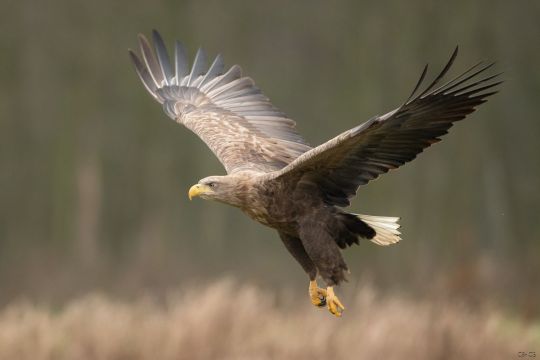
Ein adulter Seeadler hat eine dunkelbraune Grundfarbe. Der Kopf ist etwas heller, und seinen Mantel könnte man als schmutzig geschuppt bezeichnen. Im Flug ist er unverwechselbar: breite, stark gefingerte Flügel, ein leuchtend weißer Schwanz und ein lang nach vorne gestreckter Hals und Kopf. Am häufigsten kann man den Seeadler bei uns in Norddeutschland antreffen. In Wäldern mit alten, stabilen Bäumen oder an Klippen baut er seine gewaltigen Horste. Zur Nahrungssuche benötigt er Küsten, große Seen oder Flüsse in der Nähe.
An adult White-tailed Eagle has a dark brown base color. The head is slightly lighter, and its mantle could be described as dirty scaled. In flight, it is unmistakable: broad, heavily fingered wings, a bright white tail, and a long forward neck and head.
The White-tailed Eagle is most commonly seen in northern Germany. It builds its huge nests in forests with old, stable trees or on cliffs. For foraging it needs coasts, large lakes or rivers nearby.
18 notes
·
View notes
Text
Onyx Soul: Dana Carlisle, Half-Blood Siren (2001)
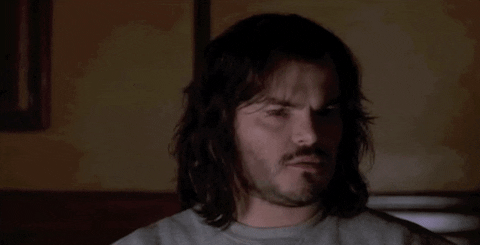
The 'Bastard' son of a Siren and her human lover, Dana is frowned upon by most of Gravesend, only being accepted by the Carson-Harlow siblings, as the rest of the town would like to get rid of him.
"Did your brothers leave you all by yourself, that's a risky move."
Name
Full Legal Name: Dana Ariel Hadley Carlisle First Name: Dana Meaning: From a surname that is of unknown origin Pronunciation: DAY-na Origin: English Middle Name(s): Ariel, Hadley Meaning(s): Ariel: Means 'Lion of God' in Hebrew, from ''Ari' meaning 'Lion' and ''El' meaning 'God' Hadley: From an English surname that was derived from a place name meaning 'Heather field' in Old English Pronunciation: EHR-ee-al/AR-ee-al, HAD-lee Origin: Hebrew, English, French, Spanish, Polish, Biblical, Biblical Greek. English Surname: Carlisle Meaning: From the name of a city in northern England Pronunciation: KAHR-liel Origin: English Aliases: Dan Carlyle, Ariel Hadley Nicknames: Dan, Ana, D.C, Ari Titles: Mr
Characteristics
Age: 23 Gender: Male. He/Him Pronouns Race: 1/2 Siren 1/2 Human Nationality: American Ethnicity: White Birth Date: 28th August 1978 Sexuality: Bisexual Religion: Raised following the 'Water Spirit' Native Language: English Spoken Languages: English, (some) Spanish, (Some) French Relationship Status: Single (Has a crush on both Phoenix and Navy) Astrological Sign: Virgo Face Claim: Jack Black
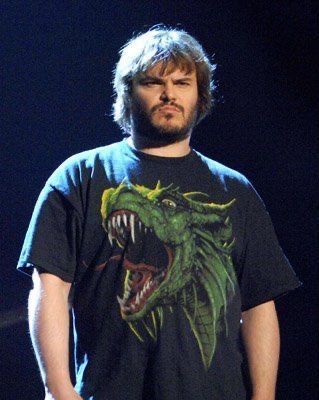
Geographical Characteristics
Birthplace: Gravesend Current Residence: Gravesend Have They Been Beyond The Veil: Yes
Appearance
Height: 5'6" / 168 cm Weight: [Data Redacted] Eye Colour: Brown Hair Colour: Brown Hair Dye: None Body Hair: Hairy Facial Hair: Full Beard Tattoos: None Piercings: None Scars: gills hidden as scars when above water Clothing Style: Beach shorts, graphic T-shirts
Health and Fitness
Allergies: None Alcoholic, Smoker, Drug User: Social drinker Illnesses/Disorders: None permanent, gets gill infections if he swims in fresh-water Medications: Takes pills to prevent infections and to make sure he can breathe for longer underwater Any Specific Diet: None
Relationships
Affiliated Groups: None Friends: Hayden Harlow, Phoenix Carson, Navy Carson-Harlow, Harley Yancy Enemies: None, but the whole town seems to hate him Mentor: Daniyah Carlisle Significant Other: None Previous Partners: None of Note Parents: Abraham Maus (46, Father), Daniyah Carlisle (48, Mother) Parents-In-Law: None Siblings: None Siblings-In-Law: None Nieces & Nephews: None Children: None Children-In-Law: None Grandkids: None Other Notable Relatives: None
Notes
Occupation: Construction (Works with Hayden & Phoenix) Tropes: (Purely speculative)
Apparently Human Merfolk: Dana's half human, so he looks the most like a human being when above water.
Ear Fins: When below water
Fish People: when below water, though he still looks somewhat-human in comparison to pure-blood sirens
Sirens are Mermaids
Super Not-Drowning Skills: Due to being half human, Dana can only last 48 hours below water
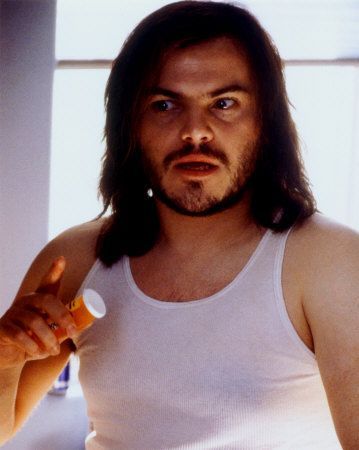
#onyx soul series#Dana Ariel Hadley Carlisle#Dana Carlisle#Dan Carlyle#Ariel Hadley#siren#merperson#merfolk#merman#mermaid#half human#half siren#half mermaid
4 notes
·
View notes
Text
The People’s Paintings
Their works drop groundward, but themselves, I know, Reach many a time a heaven that's shut to me, Enter and take their place there sure enough, Though they come back and cannot tell the world. My works are nearer heaven, but I sit here. The sudden blood of these men! at a word— Praise them, it boils, or blame them, it boils too. I, painting from myself and to myself, Know what I do, am unmoved by men's blame Or their praise either.
That comes from Andrea del Sarto, published in 1855, a dramatic monologue inspired by the eponymous Renaissance painter. Robert Browning, through the figure of del Sarto, explores religion, love, and art. For now we shall focus on the third of these three things alone — though, perhaps, they are interminably intertwined and ineluctably inseparable. Well, it is not my place to ponder that question right now; 'tis yours. So I hand the proverbial microphone over to you. These are some of my favourite paintings...
1)
An obscure painting by an obscure artist - “The Shining Plain” by Tom Lea (1907-2001).
A native of El Paso, Texas, Lea first worked as a painter and muralist, and later as a novelist and historian. During WWII, he served as an artist correspondent for LIFE magazine, embedded with the U.S. Navy and Marine Corps. He was witness to some of the most tragic and bloody days of the war–the sinking of the aircraft carrier Wasp by a Japanese submarine, and the bloody (and strategically questionable) battle of Peleliu, from which came his most well-known paintings, “The Two-Thousand Yard Stare” and “The Price”.
After his return from war, Lea returned to painting real and imagined scenes of his native Texas, perhaps as healing. “The Shining Plain” (1947) was one of these. It is a sparse painting, a field of knee-high grass under an overcast sky, likely inspired by similar plains that still cover much of central and northern Texas. A buckskin-clad man in a coonskin cap, perhaps a settler or trader, rides a horse, and is followed by a pack-carrying burro. Small details–the man’s expressionless, bearded face, the long gun, the conspicuously large knife in his belt–note that this is a man who has seen hardship, war, and death. But other details cast the scene in a more peaceful light. The man and his animals are facing left–westward, perhaps? The man carries his rifle comfortably, barrel facing to the rear. Both horse and burro are in mid-stride, and their ears are perked up and forward–a fearful animal would have their ears flat and lowered. Is there something of interest ahead? A water source? A destination? A place to call home? And above them all, the overcast skies are breaking, and sunlight is pouring through.
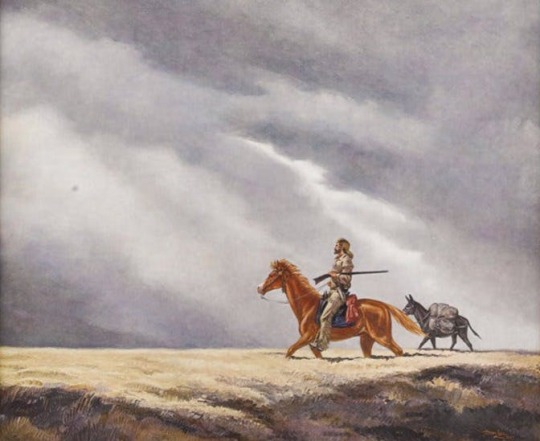
2)
I hope this isn’t cheating as it’s a print of a drawing which I have always admired. It’s a festive dinner at the Seamen’s Hospital in Greenwich and signed WS. The Seamen’s hospital was paid for by Queen Mary wife of King William as she thought that disabled seamen should have a hospital the same as the Chelsea one for soldiers. In the event it proved to be far too grand for the seamen and the wonderful Painted Hall and other buildings were used by the trustees. The rules were strict, but in general life was a great deal better than having to fend for themselves.
This image is clearly a good deal later than the original foundation (probably mid Victorian) but the dinner looks like a good one and the mugs of ale are cheering. The artist has caught the expressions on the faces of the seamen wonderfully but they all seem much more focussed on eating than on conviviality. Perhaps that’s because such a feast was rare and because they would not have wished the female serving maids to hear what they were saying. It’s also good to see a black seaman in the company and a reminder that we have always been a diverse community. The diners are reminded to be loyal and religious by the texts on the wall and we, the viewers are reminded about the dreadful injuries sustained in the many wars in which so many of them were constrained to fight.

3)
One of my favourite paintings is The Fallen Angel by Alexandre Cabanal. Everything about this painting is so beautifully haunting, from the angel's body pose to the emotions depicted in his face and eyes; sadness, anger, humiliation, and defiance.

4)
The Birth of Venus is a painting by the Italian artist Sandro Botticelli probably made in the mid 1480s. It depicts the goddess Venus arriving at the shore after her birth, when she had emerged from the sea fully-grown (called Venus Anadyomene and often depicted in art). The painting is in the Uffizi Gallery in Florence, Italy.
Although the two are not a pair, the painting is inevitably discussed with Botticelli's other very large mythological painting, the Primavera, also in the Uffizi. They are among the most famous paintings in the world, and icons of the Italian Renaissance; of the two, the Birth is even better known than the Primavera. As depictions of subjects from classical mythology on a very large scale they were virtually unprecedented in Western art since classical antiquity, as was the size and prominence of a nude female figure in the Birth. It used to be thought that they were both commissioned by the same member of the Medici family, but this is now uncertain.
They have been endlessly analysed by art historians, with the main themes being: the emulation of ancient painters and the context of wedding celebrations (generally agreed), the influence of Renaissance Neo-Platonism (somewhat controversial), and the identity of the commissioners (not agreed). Most art historians agree, however, that the Birth does not require complex analysis to decode its meaning, in the way that the Primavera probably does. While there are subtleties in the painting, its main meaning is a straightforward, if individual, treatment of a traditional scene from Greek mythology, and its appeal is sensory and very accessible, hence its enormous popularity.


#painting#art#renaissance#alexandre cabanel#robert browning#poetry#poem#love#sandro botticelli#botticelli#classic#classical#the birth of venus#primavara#uffizi#oil painting
4 notes
·
View notes
Text
Sakesphoroides niedeguidonae Cerqueira et al., 2024 (new species)

(Illustration of male [back] and female [front] individuals of Sakesphoroides niedeguidonae by Eduardo Brettas, from Cerqueira et al., 2024)
Meaning of name: niedeguidonae = for Niède Guidon [Brazilian archaeologist]
Suggested common name: Northern silvery-cheeked antshrike
Age: Holocene (Meghalayan), extant
Where found: Dry forest and scrub in northeastern Brazil, mostly on the northern/western bank of the São Francisco River
How much is known: At least 83 collected specimens are held in museum collections.
Notes: S. niedeguidonae is an antbird, a diverse group of small birds from the American tropics. Antbirds are so named because some species follow army ants to feed on small animals fleeing from the ant swarms, though this behavior has not been observed in the genus Sakesphoroides.
Sakesphoroides is found solely in the dry forest and shrubland (Caatinga) of northeastern Brazil. Only one species in this genus had previously been recognized, S. cristatus. However, a new study argues that the northern and southern populations of Sakesphoroides should be classified as distinct species based on genetic, vocal, and anatomical differences. The southern populations keep the name S. cristatus and are given the suggested common name of southern silvery-cheeked antshrike, whereas the northern populations are described as a new species, S. niedeguidonae.
Males of the two species are difficult to tell apart. Among females, however, S. niedeguidonae differs from S. cristatus in having more strongly barred tail feathers, a lighter brown crest on the head, and an olive brown (instead of cinnamon brown) back.
Seasonally dry tropical forests such as the Caatinga have traditionally been thought of as having low biodiversity and few unique species compared to tropical rainforests, but recent discoveries such as S. niedeguidonae have shown that much of dry forest biodiversity has likely been historically overlooked.
Reference: Cerqueira, P., G.R. Gonçalves, T.F. Quaresma, M. Silva, M. Pichorim, and A. Aleixo. 2024. A new antshrike (Aves: Thamnophilidae) endemic to the Caatinga and the role of climate oscillations and drainage shift in shaping cryptic diversity of Neotropical seasonal dry forests. Zoologica Scripta advance online publication. doi: 10.1111/zsc.12672
#Birblr#Dinosaurs#Birds#Sakesphoroides niedeguidonae#Northern silvery-cheeked antshrike#Holocene#South America#Telluraves#2024#Extant
79 notes
·
View notes
Text
Happy Birthday 🎂 🥳 🎉 🎈 🎁 🎊 To You, 1 Of The Greatest Irish Actors Of The Century Since Pierce Brosnan
Born On June 7th, 1952
He was born in Ballymena, County Antrim, the son of cook Katherine "Kitty" Neeson (née Brown) and primary school caretaker Bernard "Barney" Neeson. Raised Catholic, he was named Liam after a local priest. The third of four siblings, he has three sisters, Elizabeth, Bernadette, and Rosaleen.[citation needed] He attended St Patrick's College, Ballymena from 1963 to 1967, and later recalled that his love of drama began there.
He is an actor from Northern Ireland. He has received several accolades, including nominations for an Academy Award, a BAFTA Award, three Golden Globe Awards, and two Tony Awards. In 2020, he was placed seventh on The Irish Times list of Ireland's 50 Greatest Film Actors. He was appointed Officer of the Order of the British Empire (OBE) in 2000.
In 1976, Neeson joined the Lyric Players' Theatre in Belfast for two years. His early film roles include Excalibur (1981), The Bounty (1984), The Mission (1986), The Dead Pool (1988), and Husbands and Wives (1992). He rose to prominence portraying Oskar Schindler in Steven Spielberg's holocaust drama Schindler's List (1993) for which he earned an Academy Award for Best Actor nomination. He followed by starring in Nell (1994), Rob Roy (1995), Michael Collins (1996), and Les Misérables (1998). He took blockbuster roles portraying Qui-Gon Jinn in George Lucas' space opera Star Wars: Episode I – The Phantom Menace (1999), Ra's al Ghul in Batman Begins (2005) and Aslan in The Chronicles of Narnia trilogy (2005–2010). He also starred in Martin Scorsese's Gangs of New York (2002), the romantic comedy Love Actually (2003), and the drama Kinsey (2004).
Beginning in 2009, Neeson cemented himself as an action star with the action thriller series Taken (2008–2014), The A-Team (2010), The Grey (2011), Wrath of the Titans (2012), and A Walk Among the Tombstones (2014). He is known for his collaborations in the genre with director Jaume Collet-Serra, and starred in four of his films: Unknown (2011), Non-Stop (2013), Run All Night (2015), and The Commuter (2018). He also starred in Martin Scorsese's religious epic Silence (2016), the fantasy drama A Monster Calls (2016), Steve McQueen's heist drama Widows (2018), the Coen brothers' western The Ballad of Buster Scruggs (2018), and the romantic drama Ordinary Love (2019).
Neeson is also known for his work on stage. He made his Broadway debut in 1993 with his performance as Matt Burke in the revival of Eugene O'Neill's Anna Christie earning a Tony Award for Best Actor in a Play nomination. He then starred as Oscar Wilde in David Hare's The Judas Kiss in 1998. He received his second Tony Award nomination for his performance in the 2002 Broadway revival of Arthur Miller's The Crucible.
Please Wish This Legendary Distinguished Irish 🇮🇪 Actor A Very Happy Birthday 🎂 🥳 🎉 🎈 🎁 🎊
You Know Him & Of Course You Love Him.
The 1 & The Only
MR. LIAM NEESON 🇮🇪
AKA IRISH BAD@$$ OF MANY BIG ICONIC MOVIES 🎥 IN CINEMA
HAPPY 71ST BIRTHDAY 🎂 MR. NEESON #LiamNeeson #Quigonjinn #RasAlGhul #Zeus

2 notes
·
View notes